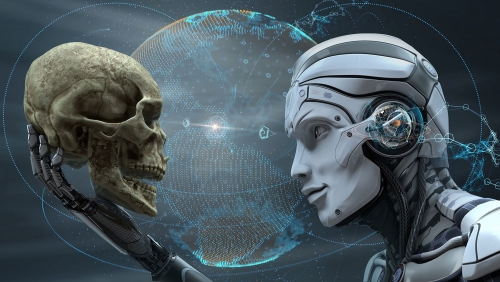
Interview with Stefano Vaj on Biopolitics and Transhumanism
by Adriano Scianca (ed.)
Translation from Italian by Catarina Lamm
Rome, May 2007. Festival of Philosophy. The cream of Italic official bigwigs convening. Here are the titles of some of the speeches featuring in the program: “Science at the Frontiers: Potentiality, Limits, Guarantees,” “Real, Virtual, Imaginary: Where are the Boundaries?” “The Confines of Life and Euthanasia. An Ethical and Scientific Perspective,” “Second Life: the New Frontiers of Experience,” “Is Man Obsolete? Human/Posthuman,” plus thematic lectures on Charles Darwin, Gunther Anders and Philip Dick. Stefano Vaj, am I wrong or is there a spectre haunting Europe, and is it the spectre of biopolitics?
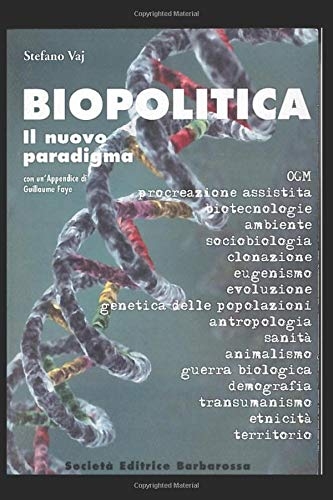 Europe – even today – remains the epicentre, at least culturally, of paradigm shifts. And there is no doubt that we are facing a growing awareness that what I call “biopolitics” represents the crucial issue of the day, our next horizon, and the really political level, in Carl Schmitt’s sense of the word, meaning the level that renders all other persuasions and affiliations secondary. Since the time when I began to work on the essay Biopolitics. The new paradigm, which is now online full-text [in Italian TN] at the address http://www.biopolitica.it, this has little by little become ever clearer, to the point when it downright stares you in the face. At the turn of the second millennium of our era, there isn’t a corner of the Earth’s biosphere that is immune to the hand of man. As a widely circulated article in the review Science remarked some years ago, “there are no more places on Earth that are not in the shade of humans”. Today humankind exerts its influence on the entire surface of the planet, either by directly transforming it or by modifying its biochemical and physical equilibria. Of course we are far from mastering its processes, but there is no more part that is immune to man’s influence.
Europe – even today – remains the epicentre, at least culturally, of paradigm shifts. And there is no doubt that we are facing a growing awareness that what I call “biopolitics” represents the crucial issue of the day, our next horizon, and the really political level, in Carl Schmitt’s sense of the word, meaning the level that renders all other persuasions and affiliations secondary. Since the time when I began to work on the essay Biopolitics. The new paradigm, which is now online full-text [in Italian TN] at the address http://www.biopolitica.it, this has little by little become ever clearer, to the point when it downright stares you in the face. At the turn of the second millennium of our era, there isn’t a corner of the Earth’s biosphere that is immune to the hand of man. As a widely circulated article in the review Science remarked some years ago, “there are no more places on Earth that are not in the shade of humans”. Today humankind exerts its influence on the entire surface of the planet, either by directly transforming it or by modifying its biochemical and physical equilibria. Of course we are far from mastering its processes, but there is no more part that is immune to man’s influence.
And also vice versa…
Exactly. Our nature and identity are obviously shaped by our environment, and not just culturally, but also biologically, if anything through the varying reproductive success of our genes. Once the environment in which we grow and evolve and the selective pressures acting on our genetic heritage become altogether artificial, then it becomes clear that it is no longer just a matter of our responsibility in defining our environment in relation to a project, but that of having a project defining in the first place what we want to be, a project allowing us, in Nietzsche’s words, to “become what we are”. Heidegger writes: “Nietzsche is the first thinker, who, in view of the world history emerging for the first time, ask the decisive question and thinks through its metaphysical implications. The question is: Is man, as man in his nature till now, prepared to assume dominion over the whole earth? If not, what must happen to man as he is so that he may be able to 'subject' the earth and thereby fulfill the world of an old testament? Must man, as he is, then, not be brought beyond himself if he is to fulfill this task? […] One thing, however, we ought soon to notice : this thinking that aims at the figure of a teacher who will teach the Superman concerns us, concerns Europe, concerns the whole Earth – not just today, but tomorrow even more. It does so whether we accept it or oppose it, ignore it or imitate it in a false accent.”
In conclusion, the question of the Übermensch cannot be eluded, even though the market rabble tries to do so when, in Zarathustra, it invokes the less frightening “Last Man”…
Let us imagine three men thrown on board a sailing boat at large. The first imprecates the fate that brought him there, and insists that involuntary passengers like himself should abandon ship using the lifeboats or even swimming if necessary. The second suggests they impose a rule that prohibits any interference with the random drifting of the boat, except minimally for its maintenance; and he is above all intent to grab hold of the available rations and the best berth; or at most to find some way to divide them up equitably so as to maintain peace on board. What instead matters to the third man is the possibility to steer the boat where he wants, learn to manoeuvre it, and decide on the route to follow.
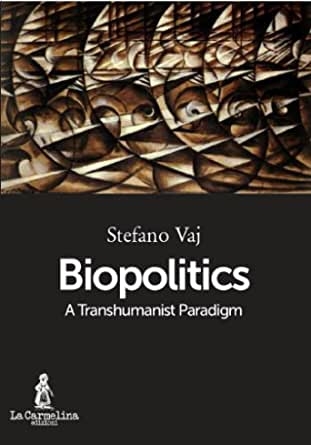 Today, the space available to the second stance – that of the Freudian repression, still prevailing, above all at the level of governments and businesses – is gradually shrinking. This in favour of both the first, the neo-Luddite, stance, be it of a traditionalist or neoprimitivist persuasion, rooted in religion or in “deep ecology”; and of the third stance, which we may call – without going too deep here into the different shades of meaning of these terms – transhumanist, posthumanist, postmodern or overhumanist.
Today, the space available to the second stance – that of the Freudian repression, still prevailing, above all at the level of governments and businesses – is gradually shrinking. This in favour of both the first, the neo-Luddite, stance, be it of a traditionalist or neoprimitivist persuasion, rooted in religion or in “deep ecology”; and of the third stance, which we may call – without going too deep here into the different shades of meaning of these terms – transhumanist, posthumanist, postmodern or overhumanist.
In fact, when I recently took part in a project that researched the bibliography relative to the subject of biopolitics, transhumanism, and the momentous transformation currently underway, I had the opportunity to inventory several hundred works published in the last 10 or 15 years, at an ever increasing pace, that deal explicitly with this topic, and that recognise that we are facing a transformation in comparison to which, in the words of Guillaume Faye, future historians will view the Industrialisation as small-time and the French Revolution as a storm in a teapot. A change that has its only precedent in the Neolithic revolution, if not in hominisation itself. And in Italy this debate is anything but absent, not only because of my own modest contribution, but also because of a local awareness of the importance of the subject that is spreading ever further across the ideological and intellectual spectrum.
Besides, in the short term, the bio-luddite technophobes on the one hand, and the transhumanists on the other, are objectively allied – if for no other reason than the common goal to raise public awareness that an era is over, that “business as usual”, which implicitly leaves it to the market and to abstract juridical rules to choose in our place, is both impracticable and potentially catastrophic.
The comparison you propose between the biopolitical revolution and hominisation is very interesting. Before discussing this subject, however, I should first like to dwell on another matter: you fleetingly mentioned transhumanism. What is it? How does “biopolitics” relate to “transhumanism”? Would it be the case that the former keeps the more “neutral” and “descriptive” tinge of a phenomenon that is actually taking place, while the latter indicates a specific path on which to direct the on-going mutations? Is this correct?
Transhumanism is at once a very simple position, and a loosely organised galaxy of associations, authors, foundations, and initiatives existing primarily online. As such, it effectively represents one of two poles around which rotates the paradigm shift that goes under the name of “biopolitical revolution”; the other pole is of course the one that transhumanists somewhat pejoratively refer to as “neo-luddite” or “humanist”– even though the respective alignments are still in the making, and still remain partly overshadowed by the residual weight given to other kinds of affiliation (such as the hazy ideological shades that might still be left in the nineteenth century distinction between “rightwing” and “leftwing”). Now, not only it should be abundantly clear to everyone even vaguely familiar with my ideas that I stand firmly in the transhumanist camp, but in the last few years I have also actively participated in “organised” transhumanism, especially by serving as board member of the Associazione Italiana Transumanisti (http://www.transumanisti.it), by taking part in international forums on the topic, etc.
On the other hand, “transhumanism” in its wider sense, and when boiled down to its core “meme” (to use the concept Richard Dawkins forged in The Selfish Gene to refer to basic cultural units), means simply this: it is legitimate and desirable to employ technoscientific means to take charge of one’s own destiny and go beyond the human condition.
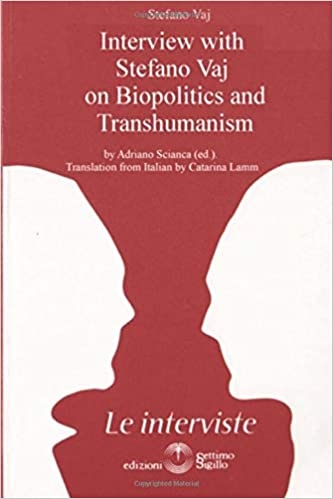 In this sense, transhumanism today stands at once for something more and for something less than my own personal take on matters of biopolitics. Something more, in the sense that it consists of a very diverse spectrum of positions and backgrounds that, although mostly finding themselves on an inevitably converging path, still include some, in my view, residuals of outdated ideas derived from monotheism, albeit in a radically secularised form. Something less, in the sense that my vision of the challenges and radical changes that are looming is based on a quite specific philosophical perspective, that many transhumanist trends and thinkers have as yet adopted (at best!) only implicitly.
In this sense, transhumanism today stands at once for something more and for something less than my own personal take on matters of biopolitics. Something more, in the sense that it consists of a very diverse spectrum of positions and backgrounds that, although mostly finding themselves on an inevitably converging path, still include some, in my view, residuals of outdated ideas derived from monotheism, albeit in a radically secularised form. Something less, in the sense that my vision of the challenges and radical changes that are looming is based on a quite specific philosophical perspective, that many transhumanist trends and thinkers have as yet adopted (at best!) only implicitly.
And what exactly is that perspective?
Clearly, I think that the “fundamentalist”, overhumanist and posthumanist version that I stand for represents in the last analysis the only viable outcome for any consistent transhumanism. And, conversely, that a rejection of decadence, of Fukuyama’s end of history, of Brave-New-Worldish cultural and anthropological entropy, in one word of the Zivilisation that today wants to project itself to eternity, of Nietzsche’s “Last Man”, of Gehlen’s “late culture” or Heidegger’s “oblivion of Being”, can really take us forward only if based in a “new beginning” of transhumanist inspiration. Modern technology, with its futuristic capability to insert mutations in our environment and in us, is a Moloch that has been awakened after two thousand years of monotheistic repression of the European subconscious and of desacralisation of the world, but it is also something that will lead either to an outcome most likely to be catastrophic, or to as radical a rupture with our recent past as was the Neolithic revolution with respect to what came before it. As Hölderlin writes in Patmos, “Wo aber Gefahr ist, wächst das Rettende auch.” (“Where poison grows, there too sprouts the remedy.”)
You mentioned the very Heideggerian expression of “a new beginning”. This takes us back to what we said earlier when we compared the “biopolitical revolution” to the “Neolithic revolution”. It would seem, then, that these future changes awaiting man in the scarcely begun third millennium retain in your opinion an undeniably “archaic” aspect. How come?
“Archaic” literally means “initial”, “primordial”. Accordingly, it may refer to the origin of what we are, as living beings, species, races or cultures; or it may refer to an origin that is yet to come, to our ability to become this origin. Current linguistic usage privileges the first sense, and gives it a negative twist: the origin obviously does not embody all its subsequent developments, and in a way its residual, contemporary fossils reflect only a fraction of the potential which has in the meantime unfolded, thus betraying and denying its own developments and deployments. Such fossils represent then only the dream of a “reversion to the past” that has nothing to do with the original position of those who instead created, precisely through a revolution, a rupture with the world that came before them. This is the reason why I have always been reluctant to adopt Faye’s word “archeofuturism”, be it just as an easy slogan; this, and because of archaic features that are already intrinsic to Futurism as those of one who posits or claim to posit himself as the origin of a new age, including that kind of nostalgia that is essentially a nostalgia of the future. Furthermore, it may pertain to man as an historical animal – at least in the interpretation of history given by authors like Friedrich Nietzsche or Giorgio Locchi – that he is unable to plan, to conceive a revolution unless he can base it on the claim to a heritage. Viewed in this light, such a claim is a variable feature of every time and tendency and movement: the only difference with overhumanism is that this mechanism is consciously adopted, and radically so, because the depth of the desired transformation and the greatness of the collective destiny are assumed to be proportional to the historic depth that one is able to assume as one’s own.
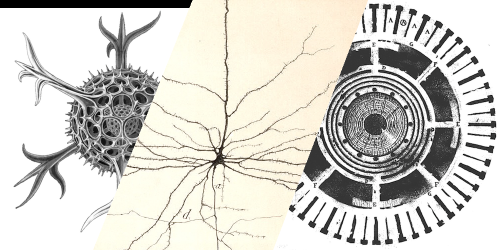
This brings to mind Nietzsche’s famous idea that “the man of the future will also be the one with the longest memory”, doesn’t it?
Exactly. From this perspective, it is not by chance that the coming of age of contemporary technology and the gradual emergence of biopolitics, as a demand for human self-determination that digs into every aspect of our bodily and physical and spiritual “environment”, coincides with the gradually expanding knowledge of our most remote history. In such a perspective, as already mentioned, the only precedent that might – just – be compared to the paradigm change that is taking place today is indeed that of the Neolithic revolution – and especially, from my point of view, how it interweaves with the response given to it by the Indo-European culture, which was partly its result, and partly its cause at least with respect to how the Neolithic age actually came to take on the shape it did.
In fact, hundreds of thousands of years after hominisation, it is with the Neolithic revolution, some time after the end of the last Ice Age, and in yet another impressive stage of the project of self-domestication that denotes the adventure of our species, that a “second man” emerges for the first time. This Second Man is of course the man of agriculture (and the correlated sedentary lifestyle and first demographic explosion), of “towns”, of politics, religion, traditions, division of labour, of what has come to be called “pyric technology”, of the great Spenglerian cultures. At the time of the Second Man, the “natural environment” becomes for the first time a cultural environment. Not only is the natural environment henceforth influenced and moulded by the presence of man, but the human factor properly speaking becomes inextricably interwoven with the purely biological factors in a combined action at once on the individual phenotype and on the selective pressures that shape his genetic lines.
Fascinating...
Spengler wrote: “[At this point,] the tempo of history is working up tragically. Hitherto, thousands of years have scarcely mattered at all, but now every century becomes important.[...] But what in fact has happened? If one goes more deeply into this new form-world of man’s activities, one soon perceives most bizarre and complicated linkages. These techniques, one and all, presuppose one another’s existence. The keeping of tame animals demands the cultivation of forage stuffs, the sowing and reaping of food-plants require draught-animals and beasts of burden to be available, and these,again, the construction of pens. Every sort of building requires the preparation and transport of materials, and transport, again, roads and pack-animals and boats. What in all is this is the spiritual transformation? The answer I put forward is this — collective doing by plan. Hitherto each man had lived his own life, made his own weapons, followed his own tactics in the daily struggle. None needed another. This is what suddenly changes now. The new processes take up long periods of time, in some cases years — consider the time that elapses between the felling of the tree and the sailing of the ship that is built out of it. The story that divides itself into a well-arranged set of separate ‘acts’ and a set of ‘plots’ working out in parallel in one another. And for this collective procedure the indispensable prerequisite is a medium, language.”
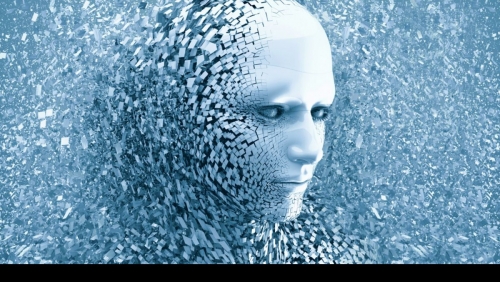
Gehlen however remarked many years ago, much before bioengineering, nanotechnology or artificial intelligence existed even hypothetically: “The industrial revolution which today is drawing to a close marks in fact the end of the so called ‘advanced cultures’, that prevailed between 3500 BCE until after 1800 CE, and fosters the emergence of a new kind of culture, as yet not well defined. Along these lines of thinking, one could indeed come to believe that the ‘civilised age’ as historical period is about to pass away, if one understands the word civilisation in the sense that has been exemplified by the history of the advanced cultures of humanity until today.”
So in fact what lies ahead is the end of the post-Neolithic age and of everything that pertains to it…
There’s no doubt about it. But at the same time, the Neolithic turning point is the only example we have of what a response to the biopolitical revolution might consist in, the revolution that will see man “inherit the Earth”, and gain total responsibility for his physiology, psychology, identity, composition, and everything that will sustain and interact with him. On this matter I refer to the distinction I make in my already mentioned bookBiopolitics between societies that have refused or ignored this sort of transformation, consequently heading more or less deliberately towards irrelevance and extinction; “cold” cultures that have tried to congeal early achievements into an endless repetition, somehow mimicking the previous stagnation; “tepid” cultures, active but unwilling “preys of history”; and finally the (Indo-)European response and the myth it gave rise to. It is of course this last response I have in mind when I take the Neolithic revolution as a model. And it is also interesting to notice that if the rupture that is currently about to take place is likely to be even more radical, and in this sense more similar (since it will necessarily lead to a posthuman outcome) to hominisation itself, the most recent studies tend to emphasise how the time of the Neolithic revolution is one of significant biological mutations, of which only a few years ago we had no idea.
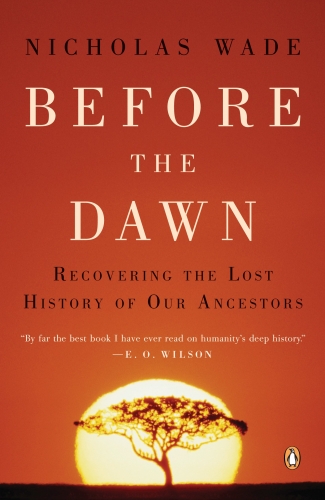 Nicholas Wade writes in Before Dawn (Penguin 2006): “The recent past, especially since the first settlements 15,000 years ago, is a time when human society has undergone extraordinary developments in complexity, creating many new environments and evolutionary pressures. Hitherto it has been assumed the human genome was fixed and could not respond to those pressures. It now appears the opposite is the case. The human genome has been in full flux all the time. Therefore it could and doubtless did adapt to changes in human society”. Inferring from the studies Wade uses for illustration, these changes include among other things the gradual spread, originating in Europe, of genetic traits that would indeed have influenced the cognitive performance of our ancestors!
Nicholas Wade writes in Before Dawn (Penguin 2006): “The recent past, especially since the first settlements 15,000 years ago, is a time when human society has undergone extraordinary developments in complexity, creating many new environments and evolutionary pressures. Hitherto it has been assumed the human genome was fixed and could not respond to those pressures. It now appears the opposite is the case. The human genome has been in full flux all the time. Therefore it could and doubtless did adapt to changes in human society”. Inferring from the studies Wade uses for illustration, these changes include among other things the gradual spread, originating in Europe, of genetic traits that would indeed have influenced the cognitive performance of our ancestors!
It has also already been remarked elsewhere that in a certain sense history’s major cultures represent grand experiments in eugenics and/or inbreeding, inasmuch as they not only clearly result from originally different populations, but also consciously or unconsciously end up selecting for arbitrary, different and – as Peter Sloterdijk remarks in Regeln für den Menschenpark (Suhrkamp Verlag KG, 1999)– totally artificial traits, in a loop that ends up reinforcing and evolving the initial features in unpredictable ways. Here too the Third Man, who according to my prognostics is summoned to command the biopolitical revolution, can perceive the true level of magnitude of the transformation, which is not that of the first green revolution in agriculture going back to the fifties and sixties of last century, nor that of the nineteenth century Industrial revolution, but of the one that began eight or ten thousand years ago.
Before we continue it might be a good thing if you clarified the nature of this figure, the “Third Man”, that you just mentioned. What’s it about?
The expression “third man” does not in itself refer to a new species or a new race (even though biological mutations are inherent in the origin, and even more so in the implications, of the term in its wider sense). And even less does it connote some next step in the cultural progress of “humanity”. It is merely an anthropological Idealtypus, a category of philosophical anthropology, discussed in greater detail by Arnold Gehlen or Giorgio Locchi, but intrinsic also in the converging intuitions of many authors of different leanings and objectives, from Ernst Jünger to Herbert Marcuse, from Peter Sloterdijk to Martin Heidegger to Filippo Tommaso Marinetti, and the definition of which bears deeply on man’s essence, the rein-menschliches, and its relation to technology at a time of profound upheaval.

In this light, the “first man” would be represented by what the anthropologists call the “behaviourally modern man”; he is the hunting-and-gathering being who self-creates through the adoption of language and magic, which allow him or her to identify with models borrowed from the environment in which he is immersed in order to make up for his natural shortcomings and exploit his ethological plasticity, thereby becoming the “omnibeast”, the “open-ended” animal. The Second Man, on the contrary, is represented by the emergence, precisely with the Neolithic revolution, of the new diverse, long-lasting and fast-changing ways of life and artifacts, the differentiation and affirmation of which are well illustrated by the biblical myth of the Tower of Babel. If the “first man” epitomises the ability to mirror his environment and recast himself therein, and the second man the ability to modify and choose his own self – also biologically - by shaping his own specific environment (Umwelt), the Third Man is then the one who masters this process, which has necessarily become self-conscious and deliberate inside an environment which, at least within the Earth’s biosphere, can from now on be nothing other than through and through artificial – even when it is intentionally architected to maintain or recreate the idea of an arbitrarily, and culturally identified, image of “nature”...
Could you elaborate?
In other words, if the cultural texture of the selective pressures and environmental influences that shape individuals and their communities is what determines the humanity of the “second man”'s phylogenesis and ontogenesis, in the Third Man these processes are themselves cultural products. With the third man, when the technologies of transportation, storage and long-distance transmission of texts, data, sounds and images, modern medicine, computation, engines running on physical and chemical energy, emerge, then our “extended phenotype” alters both gradually and dramatically until transforming into a cyborg or at least into a fyborg ( (a “functional cyborg”, as described by Gregory Stock in Redesigning Humans, Mariner Books 2003). So, it is not by chance that the arrival of this “third man” immediately opens up a new perspective of eugenic self-determination, which the new responsibilities now weighing on us render both possible and necessary – as do the potentially catastrophic consequences of the process of his own affirmation.
It should be added, as I have done elsewhere, that the above mentioned anthropological types are of course to survive, and their histories to overlap to a certain extent, at a geographical or cultural level – at least until the deplorable and final establishment of a global Brave New World -, at a social level, and in individual psychologies and reflexes, as the reptile may in general terms survive in man; exactly like pre-Neolithic cultures, for instance the Australian aborigines, have somehow managed to survive until now, or at least until the beginning of last century. Actually, if the past is a good precedent for the future, the sociology of the third man might have a few surprises in store for us concerning the commonplace of an “evolution” that would be “reserved to a few”.
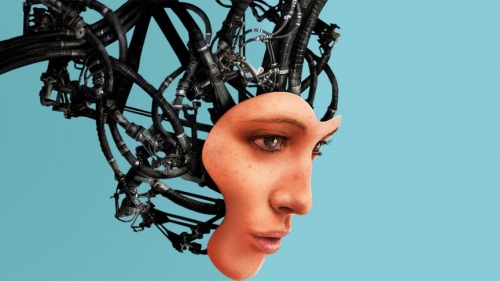
Meaning?
In the post-Neolithic society, contrarily for instance to Guillaume Faye's hypothesis in Archeofuturism (Arktos Media 2010) that the future might bring us modi vivendi with two velocities, it is in fact the elites, if anyone, who perpetuated archaic ways of life, albeit in an idealised and largely symbolic form. The king's park, as I stress in Biopolitics, does not consist of cultivated fields around densely scattered farms, but of essentially uninhabited gardens, orchards, hunting grounds, areas set apart for the occasional and highly ritualised combats (duels and tournaments), where until relatively recently the aristocracy still mimicked lifestyles more than a little related to those of hunting-and-gathering cultures. While for most people daily life, for better or for worse, had been much more disrupted by on-going historical mutations than for those who found themselves to organise and manage such mutations.
But what would be the corresponding changes applicable to the Third Man?
Of course, with respect to the Third Man, if the origin of this transformation might be that the geographical exploration of all land above sea level and the first industrial revolution had essentially been exhausted, it is the promise of the technologies subsumed by the umbrella term defined by the expression “bio-nano-info-cogno” that represented the final point of rupture with the “old” lifestyle. So, to conclude, I will adopt a metaphor taken from computer science, with all due caution required when dealing with metaphors: if with respect to the somewhat static and repetitive behavioural modules of chimps and gorillas we could “poetically” compare the first man to a calculator, who would for the first time make it possible to add, multiply or divide arbitrary integers, then the second man would correspond to a universal and programmable computer, such as the PC that stands on everyone's desk, and the third man could be likened to an artificial intelligence capable of self-programming.
This idea of man consciously self-designing calls to mind what Craig Venter, the American scientist once more made famous by the announced creation of a lab-synthesised chromosome, recently declared in an interview with the BBC: “The synthesis of an entire human genome in a test tube will be possible already in this century, but I don't think that it will take place, because we scientists are all against this kind of experiments on humans. This of course doesn't rule out that someone will do it next century, or attempt to change some pieces of DNA to improve some physical features”. What do you think of this?
I think that, with all due respect for Venter and for what he has achieved until now, to speak of “all we scientists” is stretching it, because scientists' stances are (luckily) spread across the whole spectrum of opinions found inside the communities where they are active, even though there are important statistical discrepancies (for instance, on average, American scientists subscribe much less to Intelligent Design than does their society at large), and often they feel a degree of solidarity with the aspirations alive in these communities. In fact, contrary to Venter’s view, I daresay that if something is doable, and likely to be advantageous to those concerned, then it is pretty likely that sooner or later someone will go ahead and do it. Nevertheless, what a repressive legislation is able to affect is the when, who, where and why (here in the sense of “to what end?”, “in whose interest?”).
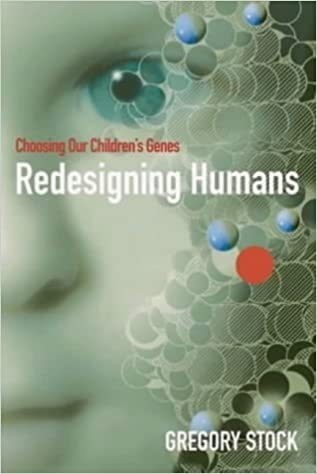 As Gregory Stock say in Redesigning Humans (op. cit p113): government regulations “in this area are unlikely to alter the fundamental possibilities now emerging. The legal status of various procedures in various places may hasten or retard their arrival but will have little enduring impact, because, as already noted, the genomic and reproductive technologies at the heart of GCT [germinal choice technology] will arise from mainstream biological research that will proceed regardless. Bans will determine not whether but where the technologies will be available, who profits from them, who shapes their development, and which parents have easy access to them. Laws will decide whether the technologies will be developed in closely scrutinized clinical trials in the United States, in government labs in China, or in clandestine facilities in the Caribbean.”
As Gregory Stock say in Redesigning Humans (op. cit p113): government regulations “in this area are unlikely to alter the fundamental possibilities now emerging. The legal status of various procedures in various places may hasten or retard their arrival but will have little enduring impact, because, as already noted, the genomic and reproductive technologies at the heart of GCT [germinal choice technology] will arise from mainstream biological research that will proceed regardless. Bans will determine not whether but where the technologies will be available, who profits from them, who shapes their development, and which parents have easy access to them. Laws will decide whether the technologies will be developed in closely scrutinized clinical trials in the United States, in government labs in China, or in clandestine facilities in the Caribbean.”
On the other hand, it is within the realm of possibilities that an indefinitely expanding and ever more pervasive system of social monitoring, aimed at exorcising such a prospect, will emerge. For instance, regarding human reproduction and genetic engineering, when the relevant technologies will be available to everybody, not much beyond the level of a children’s chemistry set, in order to prevent their adoption we shall have to enforce the sequestration of all ovules and spermatozoa from their natural holders in order to prevent their manipulation, institute a database of “natural” species and race that it shall be prohibited to bypass, and create laws that make testing of all pregnancies compulsory to verify that they are the result of one’s own ovule, fertilised by a randomly selected partner of unknown genetic identity, and that all pregnancies must be carried to completion while the nature of its fruit remains in the dark.
A terrifying scenario, which however is hardly sustainable in the long run...
Effectively very hard indeed, and this despite efforts of “bioethical committees” and of reactionary legislators. In fact, in a conference in 1998, James D. Watson, the Nobel laureate and father of the Genome Project, and with Francis Crick, the discoverer of DNA, long before his crucifixion by the media that recently affected him, at the age of eighty, because of some not-really-politically-correct statements, when confronted with the usual litany of the difference between the “good” genetic engineering that aims to “cure”, and the “bad” one that aims to modify or meliorate, stood up to say: “No one really has the guts to say it, but if we could make better human beings by knowing how to add genes, why shouldn’t we?” Stock adds: “Watson’s simple question, ‘If we could make better humans…why shouldn’t we?’ cuts at the heart of the controversy about human genetic enhancement. Worries about the procedure’s feasibility or safety miss the point…” No one is seriously worried about what is impossible. “Some critics, like Leon Kass, a well-known bioethicist at the University of Chicago who has long opposed such potential interventions, aren’t worried that this technology will fail, but that it will succeed, and succeed gloriously.”
Another frontier which, to the dismay of scandalised bioethicists, is on the verge of being conquered by science, is human cloning. It was recently announced that a team of biologists of the Oregon National Primate Research centre of Beaverton, USA, would for the first time successfully have cloned tens of embryos from adult monkeys, and this demonstrates that primates too (and therefore humans) can today be cloned. What do you think of this scientific practice, considered by many to be the very incarnation of the conformist and egalitarian spirit of the system of power in place?
Cloning is a term that generally refers to the possible asexual reproduction of sexually reproducing animals and plants. In stricter terms, it is in principle a banal procedure, although technically difficult in the case of higher animals, that consists in substituting the genetic material of an ordinary, and therefore diploid, cell to that found in an ovule, which consequently develops, with no prior fecundation, an embryo which for most practical purposes is a twin of the donor. This method of asexual reproduction is equivalent to parthenogenesis, which consists in stimulating a ovule to duplicate its genetic code in order again to have it develop into an embryo that is genetically identical to the mother and so, contrarily to the best-known religious narrative about human parthenogenesis, inevitably female. And it is equivalent to any intervention that causes an embryo to split while still at the totipotent stage, which as known does not induce the growth of two “half-foetuses”, but of two genetically identical foetuses.

The latter technique presents us with an “interesting” theological dilemma with respect to the soul of the original embryo: does the soul of the original embryo split as well? Is it miraculously supplemented, in favour of either randomly chosen foetus, by and additional one? Or, if actually two brand-new souls are instead supplied, does the first soul “return to heaven”? Luckily this problem has been solved by the Italian parliament, with Law n. 40/2004, so-called on “assisted procreation”, even though it plainly concerns several additional issues. According to article 12, paragraph VII, of this statute, which puts all these procedures in the same basket, “whoever implements a procedure meant to obtain a human being descending from a single initial cell, and possibly with identical nuclear genetic heritage to that of another human being alive or dead, shall be subject to imprisonment for a duration to be determined between ten and twenty years and to a fine between 600000 and 1 million euros. If he is a medical doctor he shall in addition be permanently barred from the practice of medicine». Now, given that this sentencing guideline is more severe than that concerning punishment of involuntary homicide and assisted suicide in the Italian jurisdiction, we know that our legislator, in the spirit of the paranoia stemming from bioluddite circles and the so-called movements pro... life (!), regards as homicidal the quite trivial decision to provoke the birth of two monozygotic twins – a phenomenon that occurs spontaneously in about one in 300 pregnancies without causing bereavement in the family, social alarm or for that matter any attempts to prevent it...
Besides, it is significant that the “pro-life” concerns of these milieux are especially directed against reproductive cloning, which after all yields individuals destined to have a normal life, while they find it somewhat more difficult to attack the so-called “therapeutic cloning”, the purpose of which is the development of stem cells necessary to cure the sick, although this procedure results in the inevitable destruction of all the utilised embryos; so that those movements tend in this case to prioritise the promotion of competing alternative procedures (adult stem cells, etc.) rather than investing in unconditional criminalisation campaigns.
Is it not true, on the other hand, that therapeutic cloning and reproductive cloning are simply the two faces of the same coin? Aren’t the distinctions between them just byzantine, specious and doomed to be outstripped by events?
It is very true. And it is just as true that the one makes the other move forward. While it is unclear whether there are already cloned children walking among us, it would only require the implantation into an available uterus, with methods now tried and tested, for the human embryos generated from casual cells since May 2005 in the United Kingdom and Korea for possible “stem cell therapies” to turn into children, thus guaranteeing the indefinite repeatability of interventions and experiments.
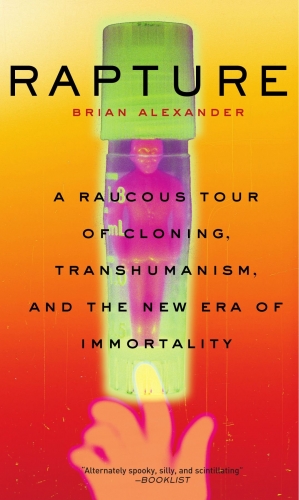 Such prospects have also become increasingly realistic by the announcement of recent breakthroughs in the cloning of embryos from the cells of adult primates; and, before that, by English research programmes that hint at the feasibility of human DNA transplants into ovules of bovine origin, a practice which would avoid the complicated and rather unhealthy procedure necessary to remove several ovules from human donors. Hence cloning, perhaps just because its realisation is already in sight, becomes “the” primary target of the whole bioluddite movement throughout the world.
Such prospects have also become increasingly realistic by the announcement of recent breakthroughs in the cloning of embryos from the cells of adult primates; and, before that, by English research programmes that hint at the feasibility of human DNA transplants into ovules of bovine origin, a practice which would avoid the complicated and rather unhealthy procedure necessary to remove several ovules from human donors. Hence cloning, perhaps just because its realisation is already in sight, becomes “the” primary target of the whole bioluddite movement throughout the world.
As Brian Alexander writes in Rapture (Perseus 2003, p 129), “The reality of cloning and stem cells pulled bio-Luddites like Kass from the margins and galvanized a strange coalition between conservative politicians, Christian evangelists, the Catholic Church, leftwing intellectuals, and green environmentalists, all of whom realized, like the bioutopians, that gene technologies, welded to stem cells and cloning, might finally permit humans to decide their own biological future. With cloning technology it was now possible to genetically engineer a cell with some desired trait, insert that cell into an egg, and get a custom-made creature. That’s why it was invented. Stem cells made that prospect even simpler, just like they had for making customized lab mice. Those prospects drove the unlikely alliance. […] No amount of hyperbole was too much if it succeeded in scaring the bejesus of the public. Kass even equated the fight against the evils of biotechnology to the battle against international terrorism: ‘the future rests on our ability to steer a prudent middle course, avoiding the inhuman Osama bin Ladens on the one side and the post human Brave New Worlders on the other’”
Of course the popularisation of these 'battles' continues to generate monsters...
Certainly. In the debate on American law against human cloning, that the Bush administration has actively tried to extend to the rest of the world, in particular via the United Nations (see resolution no. 59/280, “The United Nations Declaration on Human Cloning”), the proposer of the parliamentary bill Cliff Sterns from Florida made matters splendidly clear: “When you do a clone, there are these tentacles, part of the ovum. They remove that. There’s an actual term for that. When you clone, you don’t have an exact clone of the ova material. The tentacles are all removed…The clone would not have these and yet you and I have these when we are born. If we clone ourselves, we would not have them. We would have a category of somebody, people who did not have these tentacles and these might be superior or inferior people”. As Alexander comments (Rapture, op.cit. p140): “This was the sort of explanation that made scientists bury their faces in their hands, speechless. But such misconceptions were popular. On April 14, 2002, pundit George Will appeared on ABC’s This Week with George Stephanopoulos and argued that all forms of cloning, therapeutic or not, should be banned because ‘these are entities with a complete human genome’. In fact, just about every cell, red blood cells being one exception, has a complete genome. By Will’s logic, you could not tamper with any cell in the body, even cancer cells.”
Things quickly get paradoxical when thinking along these lines...
Now, it is evident that, while cloning may strike the areas of the public who are collectively more receptive to bioluddite and politically correct propaganda, owing - paradoxically - to the dreaded risk that humans might indeed become...all equal, it does not per se increase the odds of a reduction in genetic diversity for the species concerned. Actually, not only does cloning enable science to study the heredity of specifically human traits such as “intelligence” without the limitation of work on natural monozygotic twins (and only people who fear the results of these studies will dispute their value for anthropology, public health, education, etc.); but it also makes it possible to investigate how identical genetic endowments, perhaps pertaining to individuals that are phenotypically exceptional in some respect or other, are expressed in different, and indefinitely renewable, contexts. In fact, objecting that the price to pay for knowledge of this kind would be an ever greater “uniformisation” of the human genus – an oddly paradoxical criticism in a culture where equality and conformity are considered positive values and goals – is only valid with regard to the choice to create a very large number clones of a single, or very few, individual(s) while preventing everybody else to reproduce.

Gregory Stock writes: “The very fact that human cloning has become the rallying point for opposition to emerging high-tech reproductive techniques emphasizes the challenges ahead for that opposition. Human cloning is largely a symbol. It appeals to only a tiny fringe. It does not yet exist. There could be no easier target for a ban. And whether or not restrictions are enacted makes little difference, because as Kass and Fukuyama must know, if procedures for human cloning do not arrive through the front door, the will come through the back, probably propelled by state-supported research on embryonic stem cells […] Attempts to prevent cloning in the United States or Europe would simply shift the effort elsewhere [...] At the end of 2002, Britain announced it would add an additional £40 million to the £20 million it had already committed to stem cell research. Japan is building a big centre in Kobe that will have an annual budget of some $90 million. And China and Singapore are also moving ahead aggressively”.
In reality, a cloned individual implies a genetic loss for his species only in the case in which his birth correlates to an extinction of the genome of the potential reproductive partner of his or her parent; that is, in the case in which the sexual partner is not destined to reproduce because of the parent’s choice to give birth to a clone. Short of this, reproduction via cloning does not entail more depletion of genetic diversity than does the natural occurrence of monozygotic twins in higher animals and in humans, or the reproduction via parthenogenesis of plants and animals that can resort to this as an alternative to sexual reproduction. On the contrary, in the case of animals, cloning is already used as much to perpetuate the lineages of animals with exceptional characteristics as to conserve species on the verge of extinction. Similarly, human and animal cloning could well be deliberately used to defend biodiversity, just as much as to reduce it; that is, to preserve and spread desirable differentiations inside a given population, that perhaps would otherwise have been destined to disappear and to be reabsorbed, possibly in the framework of more general dysgenic trends arising from present-day lifestyles, ensuring their transmission to the immediate offspring of the individuals concerned, and their protection from the genetic roulette of sexual reproduction.
Your reflections on technoscientific interventions on “man's humanity” seem to draw a fundamental line of demarcation between your position and the traditional outlook of the so-called “Nouvelle Droite”, with which you had connections in the past: in fact, when this French school began to think about technoscience and sociobiology, the positions they expressed were still too “rightwing” with respect to your current theses. At that time, that is, the challenge was that of “biological realism”: namely to show (thanks to Darwin, Eysenck, Lorenz, etc.) how inequality, conflicts, hierarchies and territoriality were “natural” facts, in opposition to the abstract ideology of judeo-christian and leftwing egalitarianism. With Biopolitica, however, you sound closer to a form of “biological constructivism”than to a mere “biological realism” . Is that so?
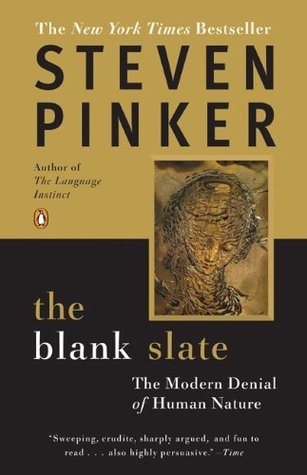 In fact, the “Nouvelle Droite”, precisely from the moment when it accepted this appellation, has had a constant inclination to shun any sensitive subjects of a biological or biopolitical nature. However, prior to that time, and even before I came in contact with its principal exponents, it had certainly played an important role in the divulgation and philosophical assessment on scientific (ethological, psychological, psychometric, genetical, anthropological, etc.) discoveries of the fifties, sixties and seventies of last century; thus reviving the debate and demystifying the idea, until the seventies almost taken for granted by human sciences, of man as a tabula rasa (see Steve Pinker, The Blank Slate, Penguin 2003), and of a humankind clearly set apart from the rest of the biosphere and internally undifferentiated, whose behaviour as well as individual and collective variations would be dictated by purely contingent factors. But the alternatives innate/acquired, nature vs nurture, have always been a foolish and journalistic way of putting things, and in fact the nearly exclusive prerogative of those biased in favour of the second term of such dichotomies. In evolutionary terms, it is clear for example that it is the environment which selects the variants found inside a species, or that allows genetic drift to act through the reproductive segregation of subpopulations. Similarly, in the specific case of the human species, its specific environment itself, as Peter Sloterdijk stresses (op. cit.) is always a largely cultural product; therefore cultures are in fact large scale experiments in self-domestication and goal-oriented selection, especially when it comes to sexual selection.
In fact, the “Nouvelle Droite”, precisely from the moment when it accepted this appellation, has had a constant inclination to shun any sensitive subjects of a biological or biopolitical nature. However, prior to that time, and even before I came in contact with its principal exponents, it had certainly played an important role in the divulgation and philosophical assessment on scientific (ethological, psychological, psychometric, genetical, anthropological, etc.) discoveries of the fifties, sixties and seventies of last century; thus reviving the debate and demystifying the idea, until the seventies almost taken for granted by human sciences, of man as a tabula rasa (see Steve Pinker, The Blank Slate, Penguin 2003), and of a humankind clearly set apart from the rest of the biosphere and internally undifferentiated, whose behaviour as well as individual and collective variations would be dictated by purely contingent factors. But the alternatives innate/acquired, nature vs nurture, have always been a foolish and journalistic way of putting things, and in fact the nearly exclusive prerogative of those biased in favour of the second term of such dichotomies. In evolutionary terms, it is clear for example that it is the environment which selects the variants found inside a species, or that allows genetic drift to act through the reproductive segregation of subpopulations. Similarly, in the specific case of the human species, its specific environment itself, as Peter Sloterdijk stresses (op. cit.) is always a largely cultural product; therefore cultures are in fact large scale experiments in self-domestication and goal-oriented selection, especially when it comes to sexual selection.
But cultures, in their turn, even though they are subsequently transmitted by “memetic” diffusion, are necessarily the creation of a specific people, whose identity and composition are thereby reflected in a unique and unrepeatable way, reinforcing and modifying its characteristics via an altogether artificial feedback loop, thus defining lifestyles, collective values and correlatively differentiated reproductive successes for its members, and differentiated from one culture to another, from one society to another. It suffices to think of something that is by definition cultural like languages: even today, as has been shown by, for example, Luigi Cavalli-Sforza (Genes, Peoples, and Languages, University of California Press 2001), the existence of a linguistic barrier drastically reduces, from a statistic standpoint and for equal geographical distances, the genetic exchange between communities; this in turn tends to create a more entrenched and complex diversity that is not only phenotypical.
It follows that, once one has accepted the idea that “God is dead” and that “man is summoned to inherit the earth”, it becomes immediately clear that also our own “nature” is destined to become, and this in a novel and deeper sense than has been true hitherto, the object of a culturally deliberate choice.

Therefore I cannot see, at least among the people writing at the time for the magazines and reviews of the Groupement de Recherche et Etudes pour la Civilisation Européenne or of Alain de Benoist, many believers in the doctrine of an eternal, uniform and immutable human nature, even though it is effectively a traditional reactionary Leitmotiv against “social” - but until the nineteen twenties also eugenic - experimentalism by the European (but not only European) left. The contrary would have been paradoxical, given the French movement's insistence on anti-egalitarianism, and on ethnic and cultural identity. It is not a coincidence then that Yves Christen, the author in the winter 1971 issue of Nouvelle Ecole of one of the best studies on pre-biotechnological eugenics of the time, wrote at the same time Marx ou Darwin, L'Heure de la Sociobiologie, but later, and more recently, Les années Faust. La Science face au vieillissement, which was one of the first French popular books on matters of longevity and on the possibility, now debated, of “forcing” current human nature to this effect. There is as well no need to recall the firm and consistent bio-Faustian positions of Guillaume Faye – a character who has certainly moved away from what had in the meantime become the Nouvelle Droite, but who has made major contributions to its original thematics –; they are manifest throughout all his more strictly philosophical works. Or even the convergent, though distinct, position of Charles Champetier, who at one stage was one of the animators of the French transhumanist movement, in particular with the site at http://www.lesmutants.com, and who published on Eléments the article “Avec les robots, par delà le bien et le mal”. Therefore, those who have been involved with such milieux and share the idea that the current biopolitical revolution is a central issue, are very unlikely to have “rightwing” positions on these matters. For those instead who have in the meantime “turned right”, mostly they are no longer interested in these issues, and when and if they are they appear more likely to be influenced by Arne Næss’s “deep ecology” than by the traditional belief that human nature would be universal and immutable.
What we're left with, out of the biopolitical efforts of the GRECE, is the positive element of “realism” your question refers to: namely that it is foolish to elaborate philosophical or sociological theories on, for instance, aggression or sexuality or social ranking without taking into account the extent to which these aspects are simply dictated by our evolutionary history and correlatively by our ethological, genetical, neurological and endocrinological make. This element deserves to be retained, both in terms of amor fati to set against the various humanist frustrations on these matters, and in view of a later and deliberate development of precisely this biological “nature”.
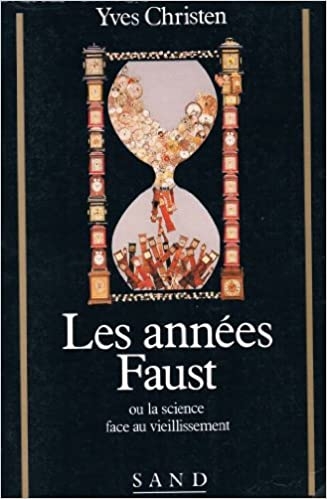 It is however undeniable that the age of genetic engineering, of cybernetics and of nanotechnology predisposes us, also conceptually, to a major quality leap. Many now explicitly speak of a “posthumanity”. Would man, in fact, be destined to vanish like “a trace in the sand between an ebb and a tide” in the words of Michel Foucault? Who added that “man is a composition who only appears between two other, that of traditional past that knew nothing of him and that of a future than will no longer know him. This is a cause neither of pleasure nor of lamentation”. Is it not not a widespread opinion that manpower has already coupled with the power of another kind, that of information, and that together they compose something distinct from man, that is indivisible “man-machine” systems, where man has been inextricably linked up with third generation machines? A union based on silicon rather than on carbon?
It is however undeniable that the age of genetic engineering, of cybernetics and of nanotechnology predisposes us, also conceptually, to a major quality leap. Many now explicitly speak of a “posthumanity”. Would man, in fact, be destined to vanish like “a trace in the sand between an ebb and a tide” in the words of Michel Foucault? Who added that “man is a composition who only appears between two other, that of traditional past that knew nothing of him and that of a future than will no longer know him. This is a cause neither of pleasure nor of lamentation”. Is it not not a widespread opinion that manpower has already coupled with the power of another kind, that of information, and that together they compose something distinct from man, that is indivisible “man-machine” systems, where man has been inextricably linked up with third generation machines? A union based on silicon rather than on carbon?
Man is definitely a borderline figure, a “stretched rope” in the ultra-famous words from Nietzsche’s Zarathustra, and it is no accident that that humanism's final success (in the sense here not of the Renaissance’s Humanism, but as the fulfillment of judeo-christian theo-anthropocentrism, including in its nowadays dominant secularised version) has been raising, now for more than a century, the issue of going beyond man. “Going beyond” becausethis appears, in the Wagnerian sense, what the “specifically human”, the rein-menschliches, really is; at least for those who see such “going beyond” precisely as our destiny, outside which one finds accordingly not only the renunciation to the “overhuman”, but also, as a consequence, to the “human” quality itself. Now, if this issue has been with us for a long time, today is is our immediate horizon, both because of the new light in which we interpret man's relation to his artificial environment and because of the “quantic leap” represented by the (possible) coming of the “third man” already mentioned. Even before Roberto Marchesini (Post-Human. Verso nuovi modelli di esistenza, Bollati Boringhieri 2002), Richard Dawkins emphasised how the traditional conception of the living individual as defined and limited by a “body” is no longer adequate, and replaced it with that of the “extended phenotype” (The Extended Phenotype: The Long Reach of the Gene, Oxford University Press 2002), in which the organism is a set of complex relations with the surrounding world, its parasites, its symbionts, its material and non-material tools, its nutrition and its predators.
If this is true, given that it isn't functionally possible to abstract an oyster from its shell or an ant from its anthill, before we even become cyborgs, we are already, all of us and increasingly so, what we have seen Gregory Stock call “fyborgs”. Our cognitive, sensory, immunitary, digestive, locomotive, predatory capacities as well as those of mechanical work and of climatic adaptation, are radically mutated by a heap of tools, devices, procedures, interactions and techniques so powerful that their growth curve, after having increased at a steady rate for thousands of years, appears today to have taken on an exponential form.
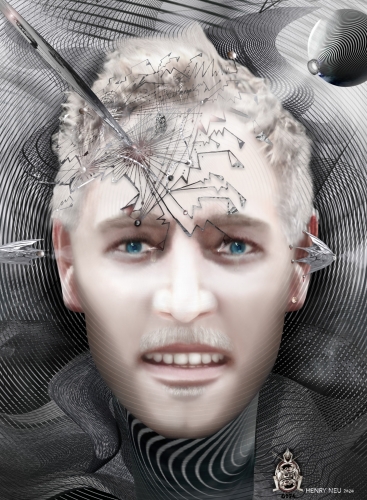
As Roberto Marchesini emphasizes in Posthuman. Verso nuovi modelli di esistenza (op. cit.), it is naive to believe that all this points to changes in “the external world”. It points, and always has pointed, to changes inwhat we are, not abstractly but practically. This is just made more obvious when this metaphorical “body” is itself invaded by anything from dental fillings or hip replacements, contact lenses or pacemakers - but today much more radically and arbitrarily by cochlear and retinal implants, by plastic surgery, by subcutaneous RFIDs, up to the first experimental neuronal interfaces with digital devices and equipment.
And this process seems to be accelerating...
Clearly, owing to the stage, still rather rudimentary, of these technologies, they are mostly restricted for the time being to therapeutical and prosthetic applications. Why replace two perfectly healthy legs with mechanical prostheses when any when any gain in performance thereby obtained would easily be outdone by a motorbike? And above all, speaking for instance of man-computer interfaces, sight, touch and hearing have for thousands of years been selected for as preferential cerebral input channels, so it is reasonable to expect that before running into genuine bandwidth limitations we can look forward to a great many enhancements in our use of these channels. Nevertheless, if fictions such as Robocop, Bionic Woman or The Six Million Dollar Man continue to view human enhancement as a response to very serious physical damage, today the athlete Oscar Pistorius has demonstrated how performances allowed by devices designed to palliate a handicap already enable humans to surpass what is considered as merely “normal”. And if the shortcomings arising from the transition to “all-artificial” solutions will gradually be going away, our experience in matters of vaccination or mammary prostheses teaches us that the “remedial” goals will simply become less and less relevant in comparison with the desire to modify or to enhance characteristics deemed “just” normal.
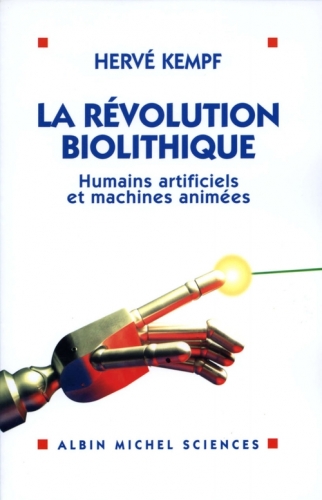 Naturally, as Hervé Kempf writes in La révolution biolithique (Albin Michel 1998) , it is absurd to dread (or, for that matter, to look forward to) a world in which we would be transformed into the caricatural robots of sci-fi movies from the fifties. In fact, while genetic engineering continues to work with the organic stuff that has always made us up, our fusion with “silicon” is in any case bound to take place on a different level (and perhaps never to take literally place at all, given that much of the most promising research in the field of information technology or materials science actually involves...carbon!). In other words, save perhaps for the experimentalism or the “tribal” trademarks of minorities who are heavily into “body modification”, such a fusion is bound to happen gradually as part of a cross-pollination between technologies and cultural paradigms, in such a way as to make their encounter go both unnoticed and unannounced in a world of increasing flexibility, freedom and morphological reversibility. Which of course can yield things either horrific or splendid, decadent or vigorous, depending upon their use, and also upon how their use will be perceived.
Naturally, as Hervé Kempf writes in La révolution biolithique (Albin Michel 1998) , it is absurd to dread (or, for that matter, to look forward to) a world in which we would be transformed into the caricatural robots of sci-fi movies from the fifties. In fact, while genetic engineering continues to work with the organic stuff that has always made us up, our fusion with “silicon” is in any case bound to take place on a different level (and perhaps never to take literally place at all, given that much of the most promising research in the field of information technology or materials science actually involves...carbon!). In other words, save perhaps for the experimentalism or the “tribal” trademarks of minorities who are heavily into “body modification”, such a fusion is bound to happen gradually as part of a cross-pollination between technologies and cultural paradigms, in such a way as to make their encounter go both unnoticed and unannounced in a world of increasing flexibility, freedom and morphological reversibility. Which of course can yield things either horrific or splendid, decadent or vigorous, depending upon their use, and also upon how their use will be perceived.
Here, nothing new under the sun...
In any event, today more and more thinkers with interests not only in technology, but also in philosophy or anthropology, ask themselves questions and imagine scenarios, above all interpretative, about the momentous metamorphosis under way, almost invariably on the basis of some consideration of the essence of technology in its relation to man, an essence which ends up representing a form of converging “unveiling”, in the Heideggerian sense, of the limitations of humanism and of the “modernity”, as we have understood it so far, which is anyway undergoing a crisis in its philosophical, anthropological, epistemological and axiological aspect. And here I am pleased to notice a surprising vivaciousness and keenness on the part of the Italian intellectual landscape - something which stands in sad contrast to the generally devastated condition of technoscientific research in our country, for which sporadic centres of excellence unfortunately cannot make up.
In particular, if doomsayers of various levels of perception express, albeit with a negative prefix, an understanding of these matters remarkably similar to my own, from Severino to Galimberti to Barcellona to Esposito, Italy is still the land of syntheses between postmodern (or better, in the words of Riccardo Campa, post-postmodern) criticism and downright posthuman positions such as those by Roberto Marchesini, Aldo Schiavone (Storia e Destino, Einaudi 2007) and Mario Pireddu (see Postumano. Relazioni tra uomo e tecnologia nella società delle reti, Guerini 2006). While these authors may reject the more folklorically eschatological or millenial aspects of a certain American transhumanism, they all clearly share a rejection of more or less chimeric neoluddite evasions and an endeavour to think a posthuman culture.
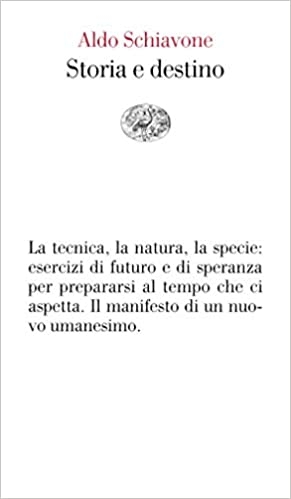 Returning to the main tenets of the Nouvelle Droite, something very similar to the Eysenck and Jensen affair, who had obtained much support at the time by de Benoist and company, has happened to the well-known biologist James Watson, attacked because he recently declared himself “inherently gloomy about the prospect of Africa because all our social policies are based on the fact that their intelligence is the same as ours—whereas all the testing says not really”. What do you think of this statement and of the polemics it gave rise to?
Returning to the main tenets of the Nouvelle Droite, something very similar to the Eysenck and Jensen affair, who had obtained much support at the time by de Benoist and company, has happened to the well-known biologist James Watson, attacked because he recently declared himself “inherently gloomy about the prospect of Africa because all our social policies are based on the fact that their intelligence is the same as ours—whereas all the testing says not really”. What do you think of this statement and of the polemics it gave rise to?
Frankly, what is really striking about the Watson affair, even more than its merits, is the extreme and paradigmatic meaning it takes on by showing how far and deep the blanket of conformism and political correctness, which today essentially chokes freedom of thought, speech and research all over the planet, has actually reached. Of course we all know that there are people, above all but not only in the US, who go around with Ku Klux Klan hoods, wear brown shirts or wave the flag of insurrectional anarchy, absolute monarchy, satanism or stalinism. All this is intermittently repressed, viewed at worst with a kind of resigned annoyance, but in reality it is mainly perceived as functional to the maintaining of status quo. First of all, as a visible manifestation of an Evil for good citizens to point the finger at, in an Orwellian “Three-Minutes-Hate” style; and secondarily as a spectacular safety valve - and sterilisation device - for whatever “drives” of radical dissent there might exist, whose most dangerous exponents are “emulsified” from the rest of society, and now and then eventually “skimmed off” via legal action and other means. But all this concerns only the lunatic fringe, openly defined as such, and who in their heart of hearts is often all to happy to remain a lunatic fringe.
And therefore nothing to do with Watson...
Not at all: James Watson is a Nobel laureate, a certified genius, especially as the discoverer, together with Francis Crick, of DNA - a scientist whose towering figure has impacted on the whole of the twentieth century, on par with Heisenberg, Gödel, Chomsky, Einstein, von Braun or Lorenz. At the age of eighty and at the end of his career, free from tenure, assignments or funding concerns, financially independent, author of many bestsellers still in print, all but outside the political arena, he could be considered as one of the least vulnerable of all people, be it to blackmail or to reprimands by the intellectual establishment. And yet, because of a passing remark, quoted out of context, he has been forbidden to give talks and to present his latest book anywhere in United Kingdom, has been pilloried by the media all over the world, has lost his (now nearly honorary) chair, which he has held for over forty years in the Cold Spring Harbor Laboratory, in addition to which he has been unconditionally and irrevocably banned by representatives of academia, by public agencies and institutes, by scientific boards.
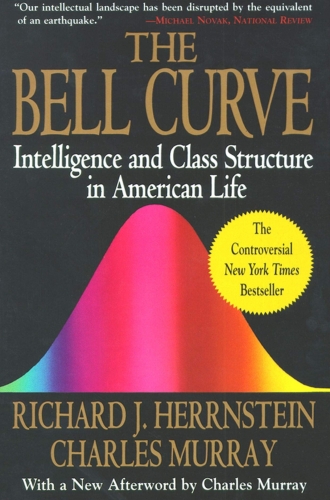 This reveals the abyss between contemporary political correctness and what Alain de Benoist and others used to call “intellectual terrorism” in the seventies, for example with respect to the polemics over the outcome of psychometric research, on which de Benoist’s publishing company, Copernic, published in France a book called Race et Intelligence, signed Jean-Pierre Hébert. At this time, Hans Jürgen Eysenck or Arthur R. Jensen were definitely attacked, even physically attacked, by a minority of politically active students, and were prevented to speak on a few occasions. But the controversial nature of their research was certainly not an obstacle to their invitation to public debates or to having their work printed, and in fact few public figures, even among their most scandalised opponents, openly admitted to wishing more than anything that their ideas be challenged and confuted. Even in 1994 Richard J. Herrnstein still managed to publish, passably untroubled, The Bell Curve (Free Press 1994), on the bell-shaped distribution of intelligence, the conclusions of which were taken seriously at the time, despite the ritual anathemas.
This reveals the abyss between contemporary political correctness and what Alain de Benoist and others used to call “intellectual terrorism” in the seventies, for example with respect to the polemics over the outcome of psychometric research, on which de Benoist’s publishing company, Copernic, published in France a book called Race et Intelligence, signed Jean-Pierre Hébert. At this time, Hans Jürgen Eysenck or Arthur R. Jensen were definitely attacked, even physically attacked, by a minority of politically active students, and were prevented to speak on a few occasions. But the controversial nature of their research was certainly not an obstacle to their invitation to public debates or to having their work printed, and in fact few public figures, even among their most scandalised opponents, openly admitted to wishing more than anything that their ideas be challenged and confuted. Even in 1994 Richard J. Herrnstein still managed to publish, passably untroubled, The Bell Curve (Free Press 1994), on the bell-shaped distribution of intelligence, the conclusions of which were taken seriously at the time, despite the ritual anathemas.
And today this is no longer the case? What has changed in the meantime?
In the meantime what has happened is that “leftwing” students have become civil servants, politicians, intellectuals, researchers and administrators, who are by now totally integrated in the system, and mostly converted to conservatism; but their openness to freedom of speech and heretical opinions has not changed, and has even grown ever narrower because of influential positions held, mutual reinforcement, and the awareness that they are no longer part themselves of a vulnerable minority. Worse, the radical blanket described earlier has spread globally, implicating, if not the whole planet, at least the whole “Western” sphere.
But let us get to the merits. What Watson said is a banality that has time and again been confirmed by empirical data. The so-called “intelligence quotient”, just like most quantitative and measurable characteristics within a population, is distributed so that its curve has a “bell shape”. This distribution curve, in other words, starts off with a small percentage at very low levels of the variable in question; then it grows, slowly at first, then more steeply, until it flattens out around the mean value; after which it decreases, and finally once again asymptotically tends to nought as it little by little approaches the most extreme, highest values.
Now, as is the case for practically all genetically influenced characteristics, the “bells” representing different components of the same population, or different populations, are not superposable at all. More specifically, they can have a different shape (be for instance steeper or flatter), or their barycentre might be further right or further left on the axis of the quantity under consideration. Hence, the remark, whenever their performance in solving IQ tests is measured, the average results of Ashkenazi Jews are higher than that of other “whites”; that “yellow” people have sharper differences between their average and maximum values; and that the performances of Americans with a recent African origin are lower than the US average, and those of individuals of the negroid race still living in Africa lower still.

It is also the case that other characteristics or abilities (from velocity in sprinting, to the efficiency of the immune system, to empathy, to longevity) can yield, and do yield, entirely different results. Not only that. Contrary to the implications of the cheap irony dumped on Watson by an ignorant journalist with reference to the presence in his DNA (made public by himself) of around 16% of negroid genes, consistent with the existence of an unknown great grandfather or great great grandfather of African ethnicity, the scenario here described does not in any way exclude, and even foresees, that there must exist individuals belonging to populations exhibiting lower results who present values even noticeably above the average of more “favoured” populations.
Finally, in the case of intelligence quotient, even the researchers who give most weight to its innateness still regard the hereditary factor to account for no more than 70% of the differences encountered in our species, which at the individual level leaves quite a lot of room for the action of educational and environmental factors.
If this is the case, how do you explain the number of scandalised protests such studies give rise to?
In fact, I think that such reactions betray the biases of protesters more than those of the researchers in the field of psychometry. In reality IQ tests measure only...the ability to succeed in IQ tests. As such, their results should not be taken more at heart than tests tests measuring the average tallness of a population; and, even less, interpreted as a value judgement of general nature on the individual concerned. Indeed, they could even in theory be used to justify supportive measures or policies of “affirmative action”, along the lines of - just to make a quip - remedial baseball lessons for white Americans, hypothetically at a statistical “disadvantage” in this sport.
Be that as it may, there is a problem. Results in “intelligence tests” are statistically correlated - after all, that's what they exist for - on the one hand to scholastic success (not in terms of popularity among peers but in scores achieved), and on the other (even though to a weaker extent) to “success” tout court of the individual concerned inside contemporary Western societies, especially in social and economical terms, everything else being equal.
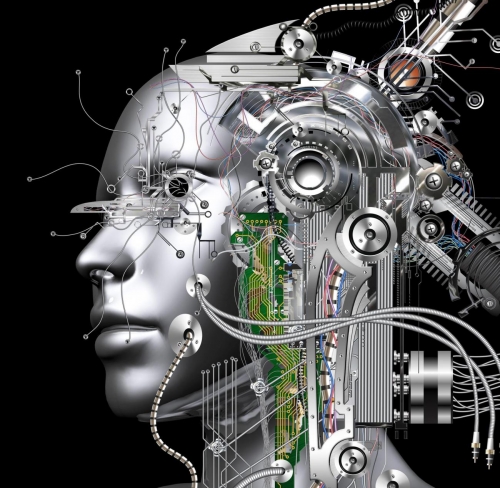
The latter qualification is however of the utmost importance, because even though our societies love to fancy themselves as denoted by a high degree of social mobility, wealth is in fact mostly transmitted by inheritance; and in any event it automatically buys one’s own offspring, real or presumed, a better education, more important family connections, status and reproductive partners of better quality, thus contributing - also thank to a discrete level of class endogamy - to minimise in real terms any contemporary “circulation of the élites”. Besides, many of the most resounding cases of upward social mobility in the West are in fact not correlated in the least with traits that could hypothetically be measured by an IQ test, but for example to physical appearance, sheer luck, or to one’s athletic performance in some sport or there.
For this reason, what the results coming out of IQ tests really hint at is basically the degree to which an individual has adapted to contemporary Western societies and to its mechanisms and selective criteria. Now, it is obvious that this risks amounting to an ultimate value judgement for intellectuals and journalists blindly convinced of the objective superiority of this social model (“the best of all worlds”) over any other that exists, has existed or even has just been speculated about; and of the manifest destiny of this model to establish universal and eternal hegemony through a global uniformisation. And, even more, for intellectuals and journalists convinced that one’s socio-economical success in such a society represents the only, or at least the only relevant, objective criterion of differentiation among human beings, the goal suggested right, left and center to each and everyone, and the objective measure of everyone's worth.
It becomes therefore totally irrelevant that what IQ tests measure does not necessarily say anything about the fitness or the probability of success of the subject in other contexts, be these the jungle of Borneo or the Tibetan religious hierarchy or a youth gang in the Bronx, or - more important still - about other personal characteristics that might matter just as much or even more than one’s chances to get wealthy. And, at the same time, many regard as morally intolerable, not to mention politically unpresentable, the fact that obviously populations that for longer have been adapting and selected (for better or worse) with reference to this model perform better according to the parameters, in no way universal, defined by that very model.
This is also what critics of IQ tests stress, without realising however that the fact that the tests are “culturally biased” is a truth at once much deeper than they think, and a truth inevitable in any kind of test, given that it is impossible in general to make measurements independently of the choice... of what one intends to measured.
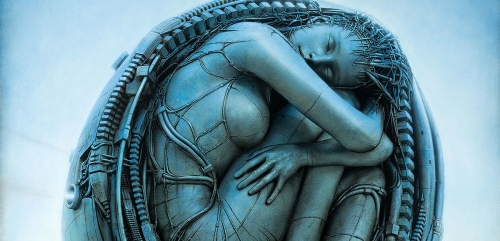
In the light of all this, Watson's statement, according to which it is naive to expect that African societies will easily and rapidly be transformed into “perfect” Western societies, appears less “scandalous” than many claimed...
I should rather say that Watson’s statement seems in fact rather plausible. Likewise, it is just as plausible, precisely in addition to what has repeatedly been confirmed by test results, that on average individuals in the American society who belong to to unfavoured social classes and/or originate from different ethnic groups may well on average achieve inferior results in what are the specialities of their “landlords”.
This also implies the paradoxical consequence that an Afro-American who attains the highest status in the American society is probably better adapted than a white American at the same level - more “intelligent”. This because not only has he had to excel in normal social competition, but he has also had to confront the natural presumptions created by the generalisation in his contacts (including perhaps in the same interested minority) of their own empirical direct and indirect experiences. Thus, he is on average likely to be more economically ambitious, more conformist, more diligent, less scrupled, to have a higher IQ, and ultimately to possess a combination of these and other factors which may be useful for success in the relevant society that is on average higher than that enjoyed the members of the class, race or ethnicity generally favoured.
All this in fact seems to correspond to basic sociological, psychological and anthropological considerations.
That's right. In addition, if the conclusions, in terms of biopolitics, that one might draw from them are several, and potentially contradictory, since they depend on fundamental choices of values, I still believe that one cannot get away from drawing conclusions. For example, in the sense of moving beyond the ideology of the tabula rasa that still prevails in social sciences and popular culture; or in the recognition of an inevitable phenomenon of “regression towards the mean”, in this case in terms of populations, that the prospective of a perfect melting pot - which would eliminate almost all forms of genetic drift and oriented selection depending on ethnic, cultural and environmental contexts – inevitably involves, to start with in terms of decreased biodiversity, flexibility and richness of the species' gene pool.
Also in this respect do the prospects of self-determination opened up by the biological revolution remain equally open. We may expect, and hope, that the human species grows beyond itself in manifold ways and following a plurality of ideal models; or else we might end up with a universally imposed idea of optimality, of the “Ken and Barbie” variety, according to which, if today Michael Jackson displays his skin-deep ethnic pride by having himself depigmented, tomorrow African societies or ethnic minorities might basically be offered a biological uniformisation, both ethologically and intellectually, as well as at the level of mental processes, to values that are in fact “white”, and that actually one may well consider relative and instrumental also from an Europoid point of view, all the more so since these do not define any ultimate or objective concept of intelligence even in this more limited context .
It is indeed arguable that relatively remote ages of European history, is spite of the likely poor results their contemporaries would obtain in today’s tests, actually demonstrated lower vibrancy or creativity in any plausible sense. On the contrary, many consider our own achievements at least in part to be the feats of dwarves on the shoulders of giants. In any event, it is true that in other times highly estimated parameters for the evaluation of someone's intellectual capacity consisted in the ability to memorise a huge quantity of formulae or facts, or to effectuate mental arithmetical operations on many-digit integers, in the manner of “idiot savants”. Today, the idea of endeavouring to genetically engineer, or eugenically select for, such a capacity would appear comical. For tomorrow, it seems reasonable to expect that some abilities, which allow an individual to score very highly on IQ tests, will see their importance maintained or increase; others will see theirs decrease; others still will become completely irrelevant in comparison with entirely different abilities that perhaps are currently underestimated.
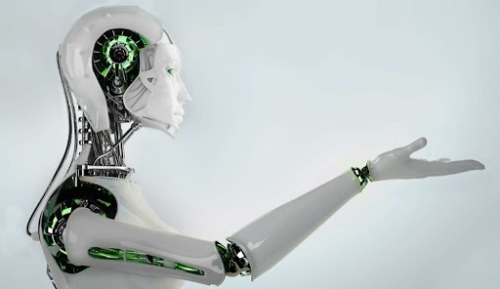
One question that nevertheless lies “at the heart” of the Watson affair and that permeates, though more or less silently, all current debates on biology and genetics, is the one about the existence of races. The holy scripture of political correctness unambiguously informs us that the concept of race has no scientific value and that any statement to the contrary is a sign the utterer is a dangerous enemy of humanity. How are things in fact?
Actually, my impression is that no one has any trouble admitting the existence of different races of horses or tigers. The same goes for races of plants, commonly called varieties (when the latter does not simply refer to the... sets of clones of a single individual). The taboo really concerns only human races, and it subjected to the “specieist” - even though allegedly “anti-racist” - view that men would be both of a nature and value transcendentally different from that of all other living beings, and at any given time essentially equal to one another – a concept the genealogy of which, especially religious, is easy to reconstruct. This idea of “separateness” and “homogeneity” is besides easier to sell inasmuch as, if Sapiens are today divided in races and scattered all over the planet, on the other hand they are also the only and last surviving species of the Homo family – a scenario, for that matter, subject to change if ever a research programme actually succeeded with the reconstruction and cloning of the DNA of Neanderthal specimens or with reverse engineering their genome and restore it to a living organism.
It should be pointed out, however, that the taboo this matter has been subjected to is increasingly running out of steam. It proved impossible, for instance, to censure the news that, according to recent American research, the human immune system varies from race to race, with considerable differences from one ethnic group to another, something which has of course resounded in matters of pharmaceutical research and practice.
Not only that. The taboo in question manifests its schizophrenic nature also in policies of positive discrimination (that aim to promote or protect the components of a given social group by reserving them exclusive quotas), or that target the repression of possible racially based discrimination. Policies that are inevitably obliged to first of all acknowledge the reality of the racial fact.
What is it all about anyway? The matter is made more complicated by its historical and psychological load, but is routinely dealt with by population genetics, and I discussed it quite extensively in the already mentioned essay Biopolitica. Il nuovo paradigma, not only out of abstract anthropological interest, but because the issues involved are of crucial importance to understand how current biodiversity arise inside our (and other) species, and how it could be preserved and developed rather than being gradually depleted. A race is, as Dobzhansky says, nothing other than an abstraction of the identifying features of secondary Mendelian populations within the same species. To manipulate such a concept it is not necessary to adhere to the “realistic”, platonising vision of 19th century positivist anthropology, according to which there are, or at least there were, “pure types” - from which present day real organisms would have descended via hybridisation -, let alone resort to concepts such as “spiritual races”, which basically boil down to metaphors since it is indeed difficult to understand how such a concept could ever be applied to races of ….canary birds.
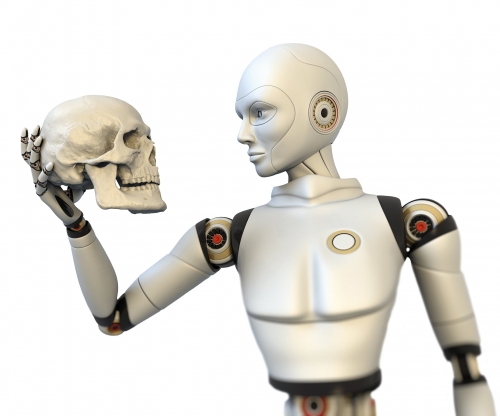
Today, genetic analysis brings an original contribution to the identification and definition of racial identities; a contribution that adds to, rather than replaces, the traditional typological classification. In fact, if the combined resultant of all the possible genetic gradients or variations in the distribution of phenotypic traits had been uniform, the genetic frequency would increase or decrease regularly by so many percentage units per mile covered in a given direction. With uniform gradients the boundaries between races could only be arbitrary; and races would be no more than “ideal” models. On the contrary the gradients are often very steep in some directions or zones, and softer in other. Theodosius Dobzhansky writes, in Genetic Diversity and Human Equality (Basic Books Inc, 1973): “Consider two gene alleles, A1 and A2, in a species with a distribution area 2,100 miles across. Suppose that for 1,000 miles the frequency of A1 declines from 100 to 90%; for the next 100 miles from 90 to 10%; and for the remaining 1,000 miles from 10 to 0%. It is then reasonable and convenient to divide the species into two races, characterized by the predominance of A 1 and A 2, respectively, and to draw the geographic boundary between the races where the cline is steep.”
Hence, it is perfectly true that “races don't exist” (and neither in this sense do species, families, genuses, phylae, kingdoms), inasmuch as they don't correspond to any tangible reality, but only to taxonomic criteria which defines, as is the rule in these cases, a model founded not on intrinsic characteristics, but simply on tendential, statistical or deterministic differences that might exist, with respect to an inclusive set; something which does not prevent species or race to remain useful, albeit ideal, concepts, at least as useful as that of “ideal” rectangular triangles or pendulums.
Indeed.
But there is more. The specific connotations pertaining to races are even more meaningful when applied to artificially selected races - and by definition, human races can in any event, following hominisation, at least to some extent be considered among these, and as the work of processes of segregation and oriented selection applied by man upon himself within the framework of a process of self-domestication that lasted for tens of thousands of years.
Hence, we are perfectly aware that a Dobermann is not the incarnation of the Platonic form of the Dobermann, to be found in some celestial realm, which at the beginning of time incarnated in an imperfect earthly copy; and that, on the contrary, it is the result, via standard breeding techniques, of the gradual approaching to to a goal, to an idea... held by Mr. Dobermann himself.
What is less often considered is that, as Peter Sloterdijk remarks, the transformation of human societies, also from the point of view of their biological substrate, is through and through the result of analogous, albeit more implicit and less deliberate, developments. Thus, the true novelty that regards today's world is that presently technoscience has at the same time brought these processes beyond the brink of consciousness and/or started a debate about them; so that they can be maintained or developed for the future - perhaps, who knows, up to and beyond the limits of speciation - only by a deliberate choice for biodiversity, biological becoming andposthuman change.
This is by the way what most deeply worries the bioluddites, for instance Jürgen Habermas who warns us (The Future of Human Nature, Polity 2003 p.121 footnote 34) against what he calls the “uncanny scenario” of a “genetic communitarianism” according to which various subcultures will pursue the eugenic self-optimizing of the human species in different directions, thus jeopardizing the unity of human nature as the basis, up to now, for all human beings to understand and to mutually recognize one another.”
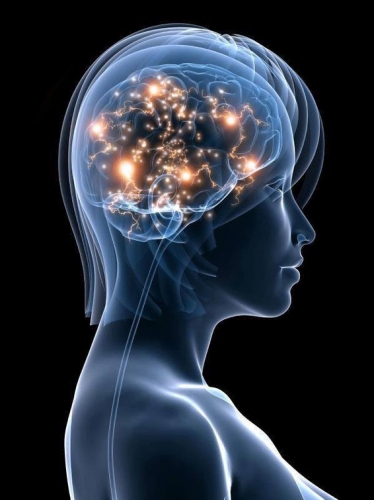
Except that such a unity, unless as an ideological aspiration, has never existed, no more than have ever existed the “pure” racial types of 19th century anthropologists; and that it is at the best one of many alternative prospectives that are proposed to today's world, and certainly for many not a very alluring one. Indeed the contrived convergence towards a unique model of humanity presupposes after all the reduction and the destruction of human diversity in favour of a single paradigm said to be, as in the typical theorisations of American racism, objectively and universally “superior”. Argument which not only is unacceptable to whoever defends instead positions of cultural relativism, but would also require a really extreme degree of alienation in order to obtain the support of those whose specific ethnic identity would, in this case, be doomed to be wiped out in the context of objectively genocidal proceedings, no matter how “peacefully” and “inadvertently” they are supposed to take place.
Another spectre that is regularly raised at the same time as that of racism concerns eugenics. This topic is viewed as particularly “sulphurous” but has antecedents even in “liberal” or socialist circles, and finds some of its first theoretical expressions in Plato. But is it really necessary to equate measures of a eugenic kind to Orwellian, consumerist and massifying scenarios, like those found in dystopic and “humanistic” Hollywood films?
Eugenics is indubitably the object of Freudian, hypocritical repression nowadays. Nevertheless, one can say that eugenic concerns are an implicit constant in most post-neolithic cultures. What comes to mind are the practices that most stir modern sensitivity, from the mount Taygetos and the Spartan agogé, to the Tarpeian rock in Rome, to medieval exposing of newborns, all the way to the “mabiki” (a euphemism which refers to the trimming of the leaves of the weakest rice plants to allow the better development of the other plants) practiced by Japanese midwives until the Meiji Restoration and beyond. But it is enough to think also of the typical exo-endogamic regimes in matrimonial matters, or of the taboo relative to incest as a potential guard against monozygotic individuals with harmful recessive traits.
However, the real and true question of eugenic flares up with the advent of the Darwinian revolution, and of Mendelian genetics, which has been considered one and the same with eugenics for a long time. And this in front also of a contemporary dysgenic risk, in itself very real, given that few believe that the change – and partial removal, via modern life styles and medicine as well as the decline of reproductive differentials – of “traditional” selective factors leads per se the genetic pool of one's own community of reference in a desirable direction.
However, eugenics, before becoming “cursed”, also as a consequence of all modern ideologies becoming increasingly marked with the humanist seal, has been perceived for a long time – and essentially until the nineteen thirties – as a “progressist” theme, since it was linked to concerns about the evolution of society in general and correlated with the latter “taking charge of itself” also biologically, to the extent that even USSR intellectuals and scientists promoted its study. Of course, where the term is put in universalist, moralist, classist terms, it quickly risks leading to grotesque results, like the mania for sterilisation as a penalty and a form of social control (the “Indiana Idea”) that was all the rage in the United States from the beginning of the nineteenth century until the New Deal, with the ultimate blessing of the Supreme Court, going as far as ridiculous bills for the compulsory sterilisation of car thieves, or to Theodore Roosevelt's timocratic programs of selective breeding, and all the other more or less bizarre examples quoted by Jeremy Rifkin in The Biotech Century (J P Tarcher, 1998).
On the other hand, as Jürgen Habermas stresses in The Future of Human Nature (op. cit.), our time brings also in this respect to completion a certain kind of change, which radically alters the scenario we face on eugenic matters.
Could you expand on that?
Certainly. As a matter of fact, the rather ideological and biopolitical substance of one's chosen position with respect to eugenics is today accentuated by the increasing erosion, because of technoscientific progress, of thesubjective costs of eugenic practices. Such costs have been in constant decrease, from the moment that the exposure of newborns and the strict parental or communal control of mating were succeeded by chemical or surgical sterilisation of heavily retarded individuals as well as by birth control; and that these are succeeded by prematrimonial anamnesis; and that this one in turn is replaced with prenatal diagnosis and genetic screening; and these are going to be supplanted by IVF with embryo and gamete selection, and finally by the direct and actually “therapeutic” manipulation of germlines, In fact, with respect to contemporary and upcoming procedures, the natural empathy for the individuals concerned militates in an entirely favourable sense, to the point of rendering their unconditional rejection an increasingly embarassing and untenable position also in view of the humanistic, hedonistic and individualistic values of the prevailing worldview.

According to Gregory Stock (op. cit.p130), statistics show that today 90% of US couples, catholics included, who discover by means of prenatal tests that they are expecting a child affected with cystic fibrosis already choose to abort it. Obviously, the percentage of them that would accept to have deliberately implanted an embryo affected by such a pathology, that is what the Italian law on IVF insanely wants to impose, would be much lower than the modest 10% of Americans who are ready to carry forth an already commenced pregnancy with an affected foetus. It is legitimate to suppose that even smaller would be the percentage of people who would make such a choice precisely when it would be possible to remove from the embryo - and from all its descendants - the disease, to the benefit of everybody. So the spectre of State eugenics is destined to remain no more than... a spectre, given that there is no plausible reason in the first place why a legal enforcement of eugenic measures would be required. If anything, in our near future, very large enforcement efforts would be requiredto prevent their generalised adoption.
There remains however the issue of socio-cultural, rather than legal, norms that will direct the concrete utilisation of such techniques, from the selection of the reproductive partner as a function of his genetic traits to the selection and modification of the embryo. And here, once more, emerges the potential for disaster, at least for whoever cares for the biological wealth and diversity of our species, not to mention its flexibility and its long-term evolutionary capacity, of the technologies in question.
Indeed, it seems clear to me that the hegemony of a universal, intercultural, monoethnic, standardised “Ken and Barbie” model, particularly through the cultural alienation of all the peoples inhabiting the planet by means of the globalisation process currently in place, risks seeing eugenics turning from an instrument of communitarian self-assertion and self-determination to an additional factor - together with the vanishing of genetic drift and diversification of selective mechanisms via an Umwelt stabilised and uniformised on a planetary scale – of an entropic “end of history” in the terms described many years ago by Julian Huxley in Brave New World.
This last point is very interesting and certainly involves more than the issues directly related to eugenics. We just said that biotechnologies could well yield “inhuman” rather than “overhuman” results, if left in the hands of powers that use them only with private and short-term interests in view. Yet, for you, such a decidedly undesirable outcome has nothing to do with the technologies themselves but with the use one might make of them. This may well be true. But in practice, if one has to take a concrete political stance, one is bound to take the present situation into account (that of a mercantilistic world essentially ruled by multinational conglomerates), not some hypothetical Futurist, posthumanist scenario. Agreed, biotechnologies could serve as well a project aimed at the “regeneration of history”; but, as things are now, we are heading in the opposite way. Should we not first of all confront this kind of situation? Following your advice, aren’t we running the risk of accelerating towards a dead end in the name of a “new beginning” that may certainly be desirable but that we cannot realistically envisage in our immediate horizon?
Such concerns are altogether legitimate, but the explosion of the “old world” is definitely a requirement for the the possibility itself of a new beginning to exist. On the other hand, unlike the Apostles or Marx - but in this sense also unlike Guillaume Faye, who professes to believe in the ineluctability of pending “catastrophes” (scientific, economic, social, ecological, etc.) - I do not maintain that such an explosion is inevitable. I am more inclined to see the end of history as a gloomy “eternal and never concluded ending”, a kind of possible “crystallisation” of modernity, but in a very different and much more extreme way than what we have experienced until now.

Some processes cannot be reversed; man's increasing power over himself and over his environment cannot be easily renounced; the “abyss” of a possible alternative to the ongoing Freudian repression of such power opened its gape as early as the 19th century and can be kept shut, to make certain no one looks inside again, only by means of a constant pressure. Such surveillance would necessarily lead to, on the one hand total social control, on the other to our relying on ever more impersonal and “rational” mechanisms to govern the System, so that any temptation to take charge of one's own destiny may be prevented and defeated as soon as it rears its ugly head. We are already witnessing for example the voidance of formal “liberties” and privileges (out of many different grounds such as preventing the access to others' personal data, limiting the risk of bacteriological or digital attacks, obstructing the unrestrained circulation of news and opinions, etc.); also, in the last years we have seen the gradual obliteration, in the same way, of the principle of non-interference, of self-determination, of “electoral” legitimisation of governments etc., since maintaining all that becomes ever more incompatible with the stability and necessary globality of the System. All this does of course fulfill the promises of the System itself, but in a very peculiar way, which, when perceived for what it is, is not especially enjoyed even by the peoples more fully subjugated to its official doctrines, and which besides results in perpetual contradictions.
Today the System uses technology, it cannot do otherwise, and needs it in ever larger doses, but at the same time in technology it finds problems and questions that it cannot address. In this sense, it is, if anything, the prohibitionist movements and opinions, the restriction of the circulation of information, the proposal for instance of compulsorily “freezing” investments in GNR (genetics, nanotechnology, robotics), the attempts to “regulate” Internet, that try to control these same contradictions in view of the above-mentioned “crystallisation”.
Fukuyama however is no longer talking about the end of history, but of “our post-human future” (Our Posthuman Future: Consequences of the Biotechnology Revolution, Picador 2003). Of course he does this to denounce it and to ward it off, insofar as this can still be done; but I think that, for those who does not share his value system, his current pessimism on these issues is indeed reassuring.
Hence, your line of argument seems to contradict the equation that underlies almost all “antagonistic” discourses, be they left-wing or right-wing: the one between the “modern world”, “Western society”, “capitalist system”, “globalisation” or “one-worldism” on the one hand, and the global deployment of technology on the other. But how is it possible to establish a contradiction between these two environments given that, historically speaking, the Western system has expanded at the same rhythm as the imposition on a planetary scale of a certain kind of technological development?
The techné, even though it can be considered in general terms as congenital to the “specifically human”, certainly represents something that has been developed and thought out in a very peculiar way in the (Indo-)European context. At the same time, it is probably reasonable and justified to suspect that modern technology - as it is the case for the great and unique blossoming of tonal, polyphonic music - is closely linked to the West, a culture to be understood as a “compromise” between Europe and Judeo-Christianity, but more accurately as the impact of the long-standing monotheistic repression of the European collective subconscious, and of the contradictory process of secularisation and emancipation that this repression gave rise to with the Renaissance.
Hence, in this sense, the planetary generalisation of technoscience does certainly have a “Western” matrix, and does represent a disruptive factor with respect to the identity, diversity and sovereignty of the peoples, that is objectively functional to processes of globalisation. But such a role can indeed be reversed. If thousands of years of post-neolithic cultures, and especially two centuries of industrial civilisation, are (also) bringing about diminished biodiversity, environmental degradation, dysgenic consequences, today the only remedy to this situation is an “excess” of technology and development - beyond the neoprimitivist dreams of the ideology ofDegrowth that has been so successful among the most decadent circles of European extreme right and extreme left.
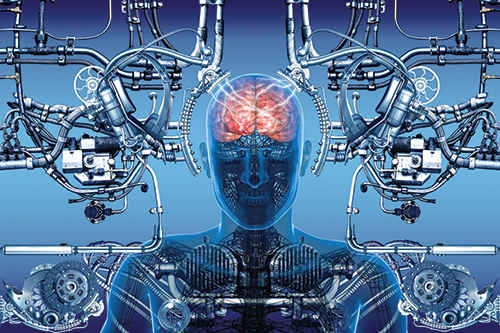
This “excess” of technology is however hardly compatible with a final success of a globalised, entropic, neocapitalist system and with an “end of history” that this one would be destined to implement to according to the hopes of its own prophets like Fukuyama. As Valérie Merindol illustrates well in La recherche et la technologie, enjeux de puissance (Economica 2003), there are well-known reasons for the constitutional incapacity of the Market to invest in breakthrough technologies or in paradigm shifts or in fundamental research, and more generally in high-risk mid- or long-term projects, let alone civilisational projects. And there exist, moreover, cultural factors (in the strong, anthropological sense of the word) that appear decisive for the possibility to maintain a certain pace of technological development. In this light, today's dazzling technoscientific achievements do not appear at all reassuring, and sometimes they even make one wonder if they are not just the last hurrahs of a very large momentum doomed rather sooner than later to die out.
In what sense?
For example, rockets and digital computers, DNA and mutations, the atom and the evolution, automatic recording, reproduction and transfer of data, images and sounds, microscopes and pathogens, antibiotics and internal combustion engines and quantum mechanics, all this was invented or discovered during a span no longer than a human life, roughly speaking between 1870 and 1950, corresponding to an acceleration, a “incandescence” of history which manifested simultaneously in all fields of social, political and cultural life.
Many of the things achieved afterwards can be regarded as a refinement, an improvement, an application, a byproduct of things imagined, planned and designed in this period, and this only where such developments actually exist in the first place. The Western citizen of the seventies had good reasons to believe 1982 to be a plausible date for the first human mission to Mars or for the construction of the first nuclear fusion plant, and crossed the Atlantic on supersonic airplanes that have not been in circulation for a very long time. The United States, after the eventual retirement of their disastrous Shuttle, have to resort to Russian technology of the time of the lunar conquest (!) to transport Chinese low-tech gadgets to the orbiting trashcan pompously called International Space Station. The average speed of transportation by land, sea, air and space has not changed for a very long time now, and their respective records have also remained stationary.

All this makes one doubt the fact that the present-day “Western system” really represents an engine for technological development, instead of a socio-economical mechanism that has become a freeloader to an historical legacy that is much more complex, yet whose own technoscientific hegemony is today questioned by countries that are, if not absolute outsiders, at least “periferal” to this legacy, such as China, India or the Russian Federation.
You just mentioned technoscience as the “emergence” of a restless Indo-European spirit that is emancipating from the grip of the “single-track” Judeo-Christian thinking. Nevertheless in Greek thought we undeniably find at the center many not-really-Faustian references to the “golden mean”, to “temperance”, to the Olympic condemnation of “Prometheism”. Vice-versa, various analysts have stressed how Christianity, through “disenchanting” the world, would be the origin of the development of modern technology. Your Futurist theses on biotechnologies might seem, in this light, much more “christian” than “pagan”...
In reality, Titanism, Prometheanism, subversion, excess, are concepts the meaning of which changes with the context where they are immersed. Let us analyse more specifically the myth of Prometheus. It is absolutely obvious that the myth of Prometheus was perceived by the Greek in a totally different way from how it was later taken up in the Romantic, and finally overhumanist, milieux, because the Greek identified with their gods; and their feelings of empathy, if any, were more likely to go to the eagle condemned to a monotonous diet of liver for all eternity. But what does the Titan really represent? It represents the eternal return, from obscure, immemorial and telluric roots, of a prior and defeated religiosity, which threatens to rise anew to exploit, steal and adulterate the “lightning”, the “fire” of the new Olympian order, or like Lucifer the “light”, and subjugate it to perfectly blasphemous ends. And its figure essentially represents a warning that we must constantly to be on our guards against all this, because the human and cosmic order will never be integrally realised or perennially granted.
Now, one has to be ideologically blind not to see how the myth has come to mean the exact opposite when it is “the religion of the Greek”, the Indo-European paganism, that finds itself playing the part of former and defeated religiosity, and yet destined to return eternally, faced with a new historic trend and worldview that has victoriously exploited and distorted its historical dynamism, and is even succeeding in establishing planetary hegemony.
Hence, in a more confused fashion for the Romantics - including aspects of romanticism that would end up in what positively are palingenetic dreams, but of social and eschatological nature (“the proletarians who shake their fetters”) - then more explicitely with overhumanism, up to the archeofuturism of Faye or to transhumanism or with Marchesini’s praise of hybris, Prometheus becomes a hope, a promise, an example; hence, it becomes the very symbol of man's tragic destiny and of whoever demands to incarnate it.
Nevertheless, as Nietzsche said, “the Greek do not come back”. Desacralisation, the “disenchantment” of the world, whatever aversion or regrets it might provoke, has taken place. Therefore, the death of the Judeo-Christian God also meant the death of the pagan gods, whom its presence indirectly and inevitably kept alive so far, as a kind of “relative antithesis”. After two thousand years of Western civilisation, after the establishment of a globalised System, a “new beginning” could not be imagined simply as another cycle (of the type of “the Doctrine of the Four Ages”), and not even as a new Spenglerian civilisation: Spengler himself rules this out, for example in Man and Technics (University Press of the Pacific 2002).
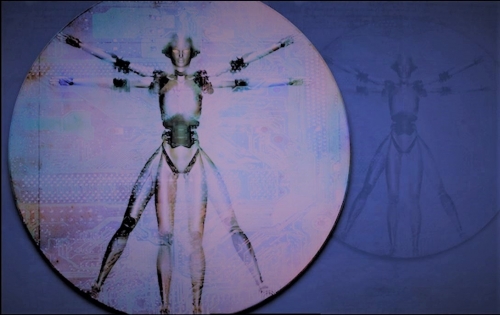
For this reason it is necessary, in order to claim an exemplary origin, to refer to something as distant and as radical as the neolithic revolution, and to the “higher magic” with which the Indo-Europeans mastered it. Judeo-christianity, and more generally the “Western civilisation” that was born with its arrival in Europe, irrevocably belongs to our past. It is not the past the legacy of which those who share my worldview claim as theirs, it is a past (and a present) that I fight and want to overcome. But we are also aware that attempts at Freudian repression would lead to nothing other than to a “return of what has been repressed”, it would take us to nothing else, as in Santayana's well known expression, than having to relive it again.
Therefore, a true overhumanism is post-Christian and post-modern, not pre-Christian; neopagan, not pagan. As Heidegger says, when the world strikes midnight, lest we fall back into nihilism, we can do nothing other than lend our ear to the sound of the new gods calling out beyond daybreak's horizon. Today, however, as Nietzsche explicitly indicates in Thus Spake Zarathustra, these new gods can be no other than ourselves; they can only be the result of our conscious creation, of a “superhuman” choice against that of “the last man”. As for what has been called “technoscience”, given that nothing similar has been produced in other areas where biblical religion eventually prevailed, we might at most consider it, as already said, as a sublimated fruit of the repression worked by the Judeo-Christian tendency on the European collective subconscious and one form of the latter's final rebellion, another being represented for instance by the grand adventure of tonal music.
However, in the sense clarified above, it is perfectly true that without Christianity no Bach, Beethoven and Wagner; no Linné and Heisenberg, Marconi and von Braun.
Today it is the “fire” of this complex legacy that the overhumanist titanically wants to make his own and to set to the humanist Walhalla, so that the twilight of today's idols already announced by Nietzsche may be consummated. Besides, the historical experience of last century shows us how rethinking and deploying the potential of modern technology is an obligatory step of any possible dream of power and freedom; and how such rethinking could entail a prodigious acceleration of that same technological capacity.
As Heidegger also writes, although he is perceived by many as adverse to the world of modern technology: “What is really worrying is not that the world is transformed in something entirely controlled by technology. Much more worrying is that man is not at all prepared for this radical mutation of the world. Much more worrying is that our speculative thinking does not enable us to adequately cope with the events of our time.”
You have defined your vision as being “postmodern”. This is interesting also in relation to what we were saying a little earlier on the connection - unnecessary and rather, little by little, ever more problematic - between technology and the “Western system”. Similarly, I believe to detect in your wording a chipping away at the binomial ideological modernity - technological modernity, that has already been prophesied, be it with opposite value judgements, by Faye and Habermas. Your biopolitical stance is therefore “postmodern” in the sense that it tends to stress only one aspect of modernity (the one Faye would call “sensorial”) and to provide it with an entirely new philosophical armature, in order to give rise to a new combination that already looks beyond modernity itself. Am I correct?
In fact, the first thing that partisans and opponents of modernity had better realise is that modernity is long since behind us. The beginning of its end coincides with the death of God, that modernity too contributed to kill, and commences to take root in people's minds at the eve of the First World War, despite endless lags that continue to this day, especially at the level of popular culture and of the values implicit in the power system in place.

At least at a theoretical level, it is exactly modern science, the one, born with Galileo, Leonardo, Giordano Bruno, which coincides with the advent of the modern era, that has, together with critical thinking, undermined the presuppositions of modernism. After having progressively demystified the legacy that the moderns not wrongly defined as “obscurantist”, it ended up by demystifying also objectivism, positivism, naive rationalism, the progressism à la Excelsior Ball, the ethical universalism that represent modernism's most salient features.
This is manifest, to go back to the topic of this interview, first of all in the understanding that science finally allows us of “the specifically human” and of life from an ethological, genetical, sociobiological, biochemical, populational, psychological, neurological, ecological, evolutionary, etc., point of view. But it is even more obvious, if possible, in the field of the hard sciences and of scientific epistemology itself.
Of course, like all great historical phenomena, modernity has a fundamentally ambiguous meaning, that does not derive only from its composite nature or from the historical phenomenon that Jules Monnerot defines as heterotelia (and that represents the inevitable drift of actual historical developments in comparison to the intended goals); but more radically from the perspective of the “present” inside which the phenomenon itself is looked at – a present that is first of all defined on the basis of the future that each of us wants to envision.
Interesting. To what perspective are you referring?
For example, with respect to the monotheistic legacy and to the decadent connotation that many associate with it, modernity represents on the one hand a becoming-true, an actualisation, a secularisation which is also abanalisation, that is a final, hegemonic penetration into mindsets and languages; on the other, it represents nonetheless a movement that breaks the metaphysical referential framework of that same legacy, and represents in nuce the unavoidable premise of its own surpassing, which not by chance regularly refers back, throughout the 16th, 17th 18th and 19th centuries, to a critical and empirical tradition that represents, as Luciano Pellicani remarks in Le radici pagane dell'Europa [“The Pagan Roots of Europe”, not translated] (Rubbettino 2007), the very soul of European culture, from Thales to Pythagoras to Democrites, from Hippocrates to Lucretius. For this reason, to say “modernity” is in a way like saying (Renaissance’s) Humanism yesterday, the Humanism of Pico of Mirandola, Lorenzo Valla and Machiavelli, with all the extraordinary cultural emancipation that this phenomenon finally allowed for also as regards our own possibility to be today what we are; and it is like saying humanism today, with everything outdated, exhausted, reactionary that this word now stands for with respect to the biopolitical, “transhuman” revolution which represents our immediate horizon.
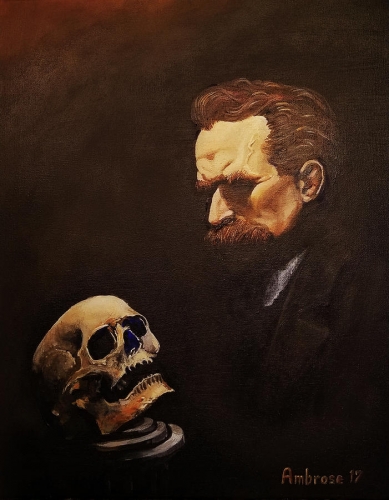
And here again Nietzsche represents the ideal watershed, the point of reference and the turning point of what is “more than modern”, and that therefore is already not modern any more. Thus, postmodernity, as I understand it, represents the Aufhebung of modernity: the closure of what in modernity actually represents nothing else than the radicalisation and the immanentisation of preexistent ideas, and a moment (specifically the synthetic, post-ideological one) of the dialectics inherent to such ideas. A “closure” which naturally is still in quest of itself, and that is constantly facing the risk of a return to premodern categories and to the temptation of shallowness, of pointless obscurity, of elaborating self-referential narratives that shun the fundamental confrontation with what Heidegger or Gehlen or Faye call “the question of technology”[2], and that coincides precisely with the historical fracture represented by the looming (possible) passage to a stage that is not only posthumanist, but posthuman. A confrontation which today is central in the views and concerns of various contemporary thinkers such as Sloterdijk, Marchesini or Schiavone.
In the beginning of the eighties, Guillaume Faye wrote: “Habermas said that one cannot conceive of a ‘nuclear poetry’. On the contrary, it is the opposite that is the case, even though the System is incapable of creating it. […] The speed, the rumbling of the machine that carries its rider over great distances, the potential grandness of modern urbanism remain present in the individual and collective psyche, because they correspond to popular archetypes. And yet this technical arsenal is not utilized by the System other than prosaically, because, unconsciously, it it frightening”. Is all this still true today? Can there be a “biopolitical poetry”?
In the end, what else is the biopolitical and transhuman revolution, in its properly epical dimension, than a primordial demand for poetry on behalf of a world vowed to Becoming? As Heidegger says, the essence of technology is nothing “technical”, and instead claims an originary and originating poiesis: “What at the dawn of Ancient Greece was thought or poeticised is still present today, so much so that its essence, still closed to itself, is before us and approaches us from all sides, above all where we least expect it, that is within the reign deployed by modern technology, which is totally foreign to that ancestral tradition and yet finds therein it essential origin».
Hence the posthuman change that represents the central aspect of the present biopolitical challenge is first and foremost the framework of a possible metamorphosis that traces an ideal line between the European ancestral myth that is handed down to us by for instance the homonymous poem of Ovid and Nietzsche's Overman, Marinetti's Multiplied Man, Gehlen's Third Man, Ridley Scott's Replicant, the Cyborg of science fiction and of the transhumanist culture, Marchesini's Posthuman.
Here it can well be said that “nature imitates art”; or rather, that art is turning into nature, on a scale hitherto not even dreamt of. Indeed, as I write in the conclusion to Biopolitica. Il nuovo paradigma: “Our restless exploring of the world, the techniques that derive from it, condemn us to choose, offer us means, but cannot tell us what to make of it. This is not the task of engineers or scientists or lawyers, but of the ‘founding heroes’, of poets, and of the aristocracies who can translate into deeds the obscure collective will of the community of people whence it emanates, build monuments destined to challenge eternity, and leave behind ‘undying glory’”.

 Ojakangas’ book has served to confirm my impression that, from an evolutionary point of view, the most relevant Western thinkers are found among the ancient Greeks, with a long sleep during the Roman Empire and the Middle Ages, a slow revival during the Renaissance and the Enlightenment, and a great climax heralded by Darwin, before being shut down again in 1945. The periods in which Western thought was eminently biopolitical — the fifth and fourth centuries B.C. and 1865 to 1945 — are perhaps surprisingly short in the grand scheme of things, having been swept away by pious Europeans’ recurring penchant for egalitarian and cosmopolitan ideologies. Okajangas also admirably puts ancient biopolitics in the wider context of Western thought, citing Spinoza, Nietzsche, Carl Schmitt, Heidegger, and others, as well as recent academic literature.
Ojakangas’ book has served to confirm my impression that, from an evolutionary point of view, the most relevant Western thinkers are found among the ancient Greeks, with a long sleep during the Roman Empire and the Middle Ages, a slow revival during the Renaissance and the Enlightenment, and a great climax heralded by Darwin, before being shut down again in 1945. The periods in which Western thought was eminently biopolitical — the fifth and fourth centuries B.C. and 1865 to 1945 — are perhaps surprisingly short in the grand scheme of things, having been swept away by pious Europeans’ recurring penchant for egalitarian and cosmopolitan ideologies. Okajangas also admirably puts ancient biopolitics in the wider context of Western thought, citing Spinoza, Nietzsche, Carl Schmitt, Heidegger, and others, as well as recent academic literature.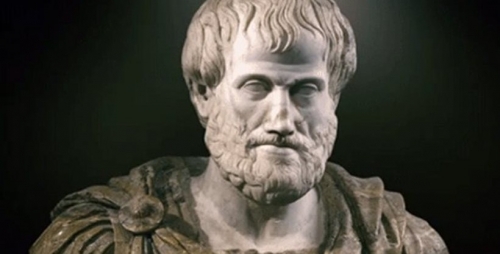
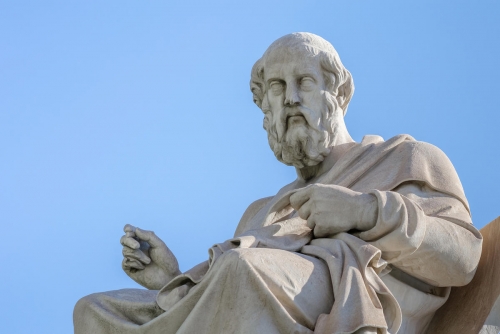
 While Rome had also been founded as “a biopolitical regime” and had some policies to promote fertility and eugenics (120), this was far less central to Roman than to Greek thought, and gradually declined with the Empire. Political ideology seems to have followed political realities. The Stoics and Cicero posited a “natural law” not deriving from a particular organism, but as a kind of cosmic, disembodied moral imperative, and tended to emphasize the basic commonality of human beings (e.g. Cicero, Laws, 1.30).
While Rome had also been founded as “a biopolitical regime” and had some policies to promote fertility and eugenics (120), this was far less central to Roman than to Greek thought, and gradually declined with the Empire. Political ideology seems to have followed political realities. The Stoics and Cicero posited a “natural law” not deriving from a particular organism, but as a kind of cosmic, disembodied moral imperative, and tended to emphasize the basic commonality of human beings (e.g. Cicero, Laws, 1.30).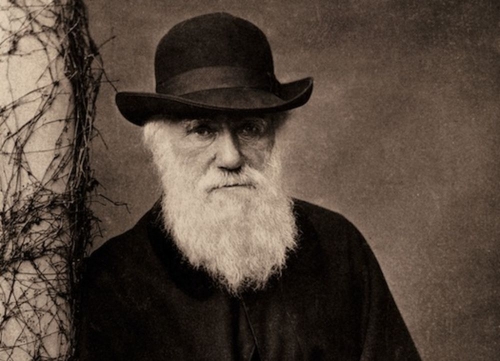
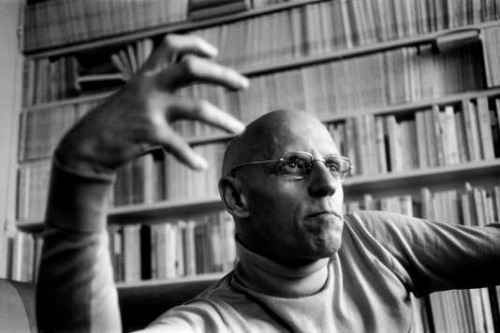





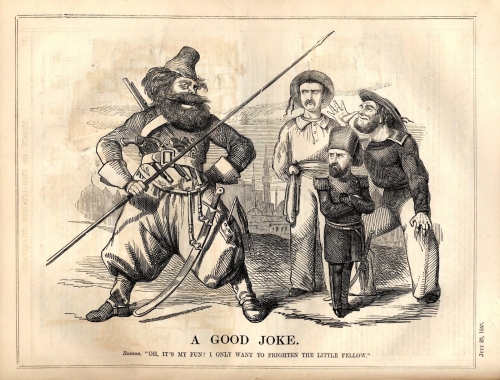

 del.icio.us
del.icio.us
 Digg
Digg
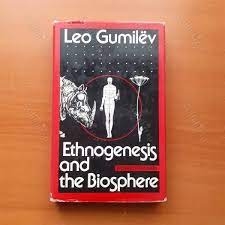
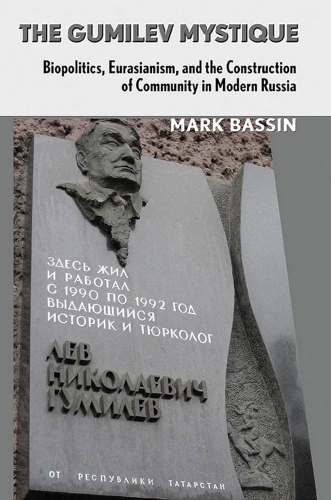
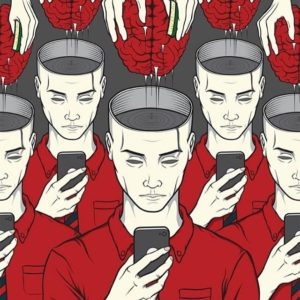

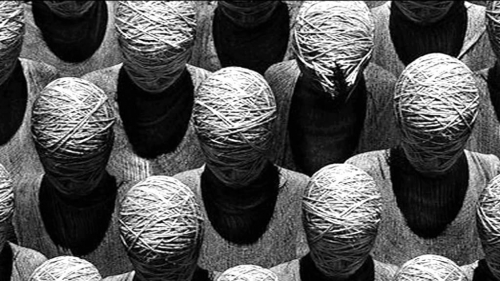

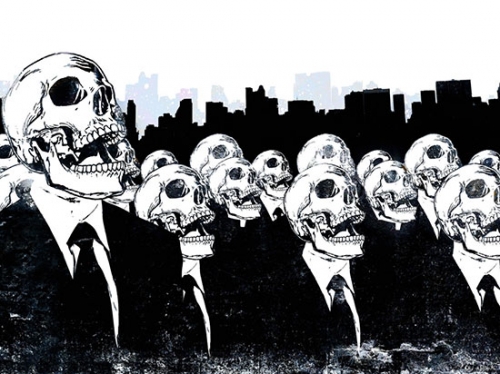
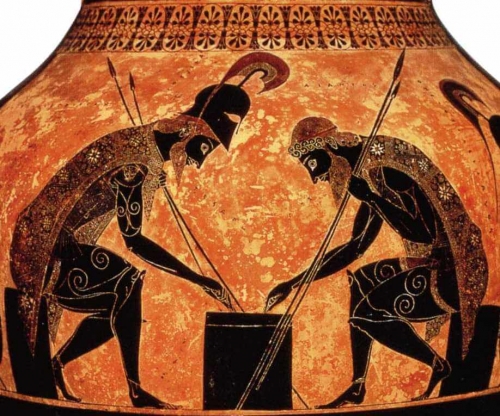
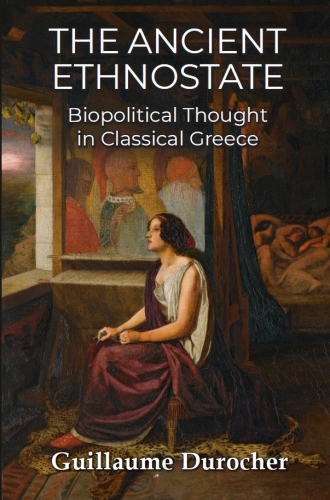

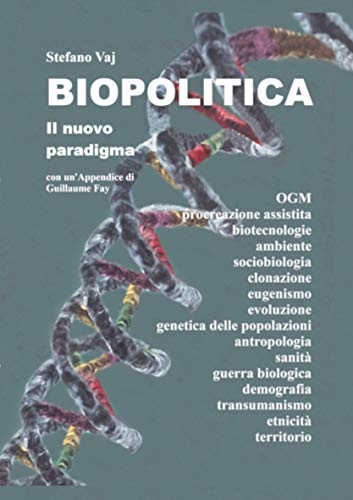 Bien sûr, outre sa "milanéité" tournée vers l'avenir, pour comprendre le parcours de Vaj, il faut aussi se référer au passé idéologique dont l'auteur est issu. Plusieurs de ses mentors, à commencer par Giorgio Locchi, en font partie. Le transhumanisme de Vaj (qui diffère des tendances américaines similaires) est clairement une réponse à l'impasse de l'espace néo-fasciste. Ayant renoncé aux rêves de révolution politique, l'auteur identifie dans une ligne de développement possible de la bio-ingénierie le moyen de donner des ailes à ce "rêve surhumaniste" dont parlait Giorgio Locchi.
Bien sûr, outre sa "milanéité" tournée vers l'avenir, pour comprendre le parcours de Vaj, il faut aussi se référer au passé idéologique dont l'auteur est issu. Plusieurs de ses mentors, à commencer par Giorgio Locchi, en font partie. Le transhumanisme de Vaj (qui diffère des tendances américaines similaires) est clairement une réponse à l'impasse de l'espace néo-fasciste. Ayant renoncé aux rêves de révolution politique, l'auteur identifie dans une ligne de développement possible de la bio-ingénierie le moyen de donner des ailes à ce "rêve surhumaniste" dont parlait Giorgio Locchi. Mettre fin aux idéologies mélancoliques
Mettre fin aux idéologies mélancoliques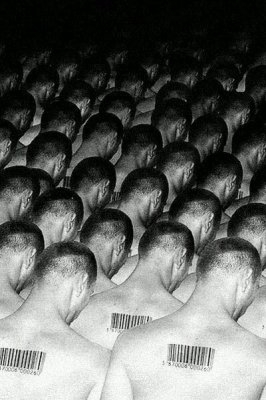






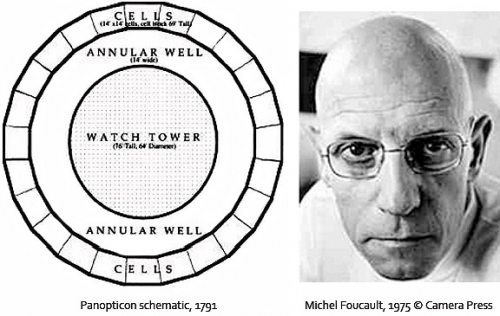

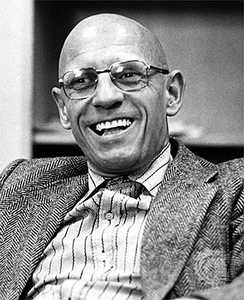 Le besoin de resacralisation et d'une charnière pour s'adapter aux trois formes de pouvoir que nous avons exposées, se résout avec la "sacralisation" d'une des disciplines développées dans la modernité : la clinique. Foucault voit dans la médicalisation de la société (omniprésence des thérapies, des protocoles médicaux, présomption que nous sommes tous malades et avons besoin d'être soignés), dans la légitimité auto-accordée de l'État à contrôler cette thérapeutique et dans les mécanismes de contrôle de la population, la survie du pouvoir. Dans la modernité, l'État ne se préoccupe pas des personnes, il se préoccupe des statistiques. C'est pourquoi, une fois l'exercice des modalités du pouvoir dans l'au-delà rendu impossible, l'État - affirme Foucault - ne se préoccupe pas de la mort, mais de la mortalité.
Le besoin de resacralisation et d'une charnière pour s'adapter aux trois formes de pouvoir que nous avons exposées, se résout avec la "sacralisation" d'une des disciplines développées dans la modernité : la clinique. Foucault voit dans la médicalisation de la société (omniprésence des thérapies, des protocoles médicaux, présomption que nous sommes tous malades et avons besoin d'être soignés), dans la légitimité auto-accordée de l'État à contrôler cette thérapeutique et dans les mécanismes de contrôle de la population, la survie du pouvoir. Dans la modernité, l'État ne se préoccupe pas des personnes, il se préoccupe des statistiques. C'est pourquoi, une fois l'exercice des modalités du pouvoir dans l'au-delà rendu impossible, l'État - affirme Foucault - ne se préoccupe pas de la mort, mais de la mortalité.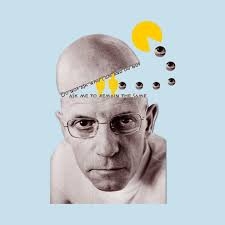

 Europe – even today – remains the epicentre, at least culturally, of paradigm shifts. And there is no doubt that we are facing a growing awareness that what I call “biopolitics” represents the crucial issue of the day, our next horizon, and the really
Europe – even today – remains the epicentre, at least culturally, of paradigm shifts. And there is no doubt that we are facing a growing awareness that what I call “biopolitics” represents the crucial issue of the day, our next horizon, and the really Today, the space available to the second stance – that of the Freudian repression, still prevailing, above all at the level of governments and businesses – is gradually shrinking. This in favour of both the first, the neo-Luddite, stance, be it of a traditionalist or neoprimitivist persuasion, rooted in religion or in “deep ecology”; and of the third stance, which we may call – without going too deep here into the different shades of meaning of these terms – transhumanist, posthumanist, postmodern or overhumanist.
Today, the space available to the second stance – that of the Freudian repression, still prevailing, above all at the level of governments and businesses – is gradually shrinking. This in favour of both the first, the neo-Luddite, stance, be it of a traditionalist or neoprimitivist persuasion, rooted in religion or in “deep ecology”; and of the third stance, which we may call – without going too deep here into the different shades of meaning of these terms – transhumanist, posthumanist, postmodern or overhumanist.  In this sense, transhumanism today stands at once for something more and for something less than my own personal take on matters of biopolitics. Something more, in the sense that it consists of a very diverse spectrum of positions and backgrounds that, although mostly finding themselves on an inevitably converging path, still include some, in my view, residuals of outdated ideas derived from monotheism, albeit in a radically secularised form. Something less, in the sense that my vision of the challenges and radical changes that are looming is based on a quite specific philosophical perspective, that many transhumanist trends and thinkers have as yet adopted (at best!) only implicitly.
In this sense, transhumanism today stands at once for something more and for something less than my own personal take on matters of biopolitics. Something more, in the sense that it consists of a very diverse spectrum of positions and backgrounds that, although mostly finding themselves on an inevitably converging path, still include some, in my view, residuals of outdated ideas derived from monotheism, albeit in a radically secularised form. Something less, in the sense that my vision of the challenges and radical changes that are looming is based on a quite specific philosophical perspective, that many transhumanist trends and thinkers have as yet adopted (at best!) only implicitly.

 Nicholas Wade writes in
Nicholas Wade writes in

 As Gregory Stock say in
As Gregory Stock say in
 Such prospects have also become increasingly realistic by the announcement of recent breakthroughs in the cloning of embryos from the cells of adult primates; and, before that, by English research programmes that hint at the feasibility of human DNA transplants into ovules of bovine origin, a practice which would avoid the complicated and rather unhealthy procedure necessary to remove several ovules from human donors. Hence cloning, perhaps just because its realisation is already in sight, becomes “the” primary target of the whole bioluddite movement throughout the world.
Such prospects have also become increasingly realistic by the announcement of recent breakthroughs in the cloning of embryos from the cells of adult primates; and, before that, by English research programmes that hint at the feasibility of human DNA transplants into ovules of bovine origin, a practice which would avoid the complicated and rather unhealthy procedure necessary to remove several ovules from human donors. Hence cloning, perhaps just because its realisation is already in sight, becomes “the” primary target of the whole bioluddite movement throughout the world.
 In fact, the “Nouvelle Droite”, precisely from the moment when it accepted this appellation, has had a constant inclination to shun any sensitive subjects of a biological or biopolitical nature. However, prior to that time, and even before I came in contact with its principal exponents, it had certainly played an important role in the divulgation and philosophical assessment on scientific (ethological, psychological, psychometric, genetical, anthropological, etc.) discoveries of the fifties, sixties and seventies of last century; thus reviving the debate and demystifying the idea, until the seventies almost taken for granted by human sciences, of man as a
In fact, the “Nouvelle Droite”, precisely from the moment when it accepted this appellation, has had a constant inclination to shun any sensitive subjects of a biological or biopolitical nature. However, prior to that time, and even before I came in contact with its principal exponents, it had certainly played an important role in the divulgation and philosophical assessment on scientific (ethological, psychological, psychometric, genetical, anthropological, etc.) discoveries of the fifties, sixties and seventies of last century; thus reviving the debate and demystifying the idea, until the seventies almost taken for granted by human sciences, of man as a
 It is however undeniable that the age of genetic engineering, of cybernetics and of nanotechnology predisposes us, also conceptually, to a major quality leap. Many now explicitly speak of a “posthumanity”. Would man, in fact, be destined to vanish like “a trace in the sand between an ebb and a tide” in the words of Michel Foucault? Who added that “man is a composition who only appears between two other, that of traditional past that knew nothing of him and that of a future than will no longer know him. This is a cause neither of pleasure nor of lamentation”. Is it not not a widespread opinion that manpower has already coupled with the power of another kind, that of information, and that together they compose something distinct from man, that is indivisible “man-machine” systems, where man has been inextricably linked up with third generation machines? A union based on silicon rather than on carbon?
It is however undeniable that the age of genetic engineering, of cybernetics and of nanotechnology predisposes us, also conceptually, to a major quality leap. Many now explicitly speak of a “posthumanity”. Would man, in fact, be destined to vanish like “a trace in the sand between an ebb and a tide” in the words of Michel Foucault? Who added that “man is a composition who only appears between two other, that of traditional past that knew nothing of him and that of a future than will no longer know him. This is a cause neither of pleasure nor of lamentation”. Is it not not a widespread opinion that manpower has already coupled with the power of another kind, that of information, and that together they compose something distinct from man, that is indivisible “man-machine” systems, where man has been inextricably linked up with third generation machines? A union based on silicon rather than on carbon?
 Naturally, as Hervé Kempf writes in
Naturally, as Hervé Kempf writes in Returning to the main tenets of the Nouvelle Droite, something very similar to the Eysenck and Jensen affair, who had obtained much support at the time by de Benoist and company, has happened to the well-known biologist James Watson, attacked because he recently declared himself “
Returning to the main tenets of the Nouvelle Droite, something very similar to the Eysenck and Jensen affair, who had obtained much support at the time by de Benoist and company, has happened to the well-known biologist James Watson, attacked because he recently declared himself “ This reveals the abyss between contemporary political correctness and what Alain de Benoist and others used to call “intellectual terrorism” in the seventies, for example with respect to the polemics over the outcome of psychometric research, on which de Benoist’s publishing company, Copernic, published in France a book called
This reveals the abyss between contemporary political correctness and what Alain de Benoist and others used to call “intellectual terrorism” in the seventies, for example with respect to the polemics over the outcome of psychometric research, on which de Benoist’s publishing company, Copernic, published in France a book called













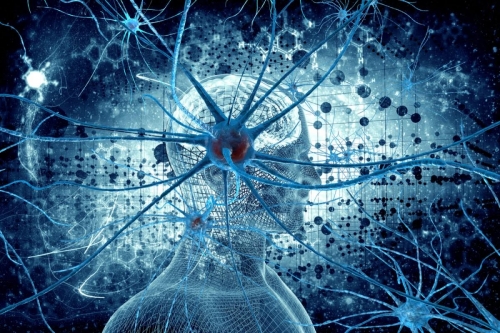

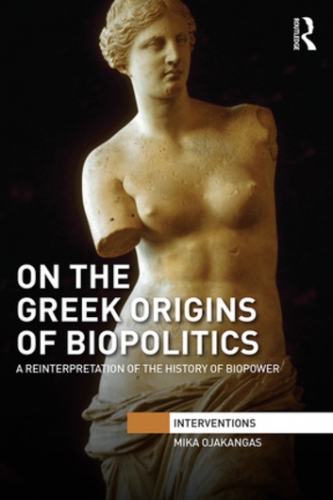

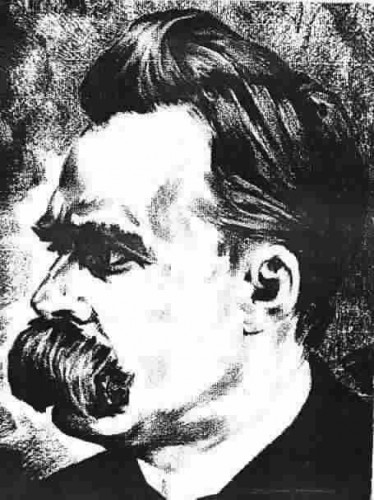 „Entartete Kultur“ – so charakterisierte Kardinal Meißner 2007 den unfruchtbaren Zustand modernen Kunstlebens. Sofort schallten die Alarmglocken der öffentlichen Meinung, die reflexartig den Bannfluch über die vermeintliche Nazivokabel aktualisierte. Ent-artung – was soviel meint wie „aus der Art schlagen“ – wurde tatsächlich von dem nationaljüdischen Arzt Max Nordau geprägt, und zwar im Rahmen einer Semantik, die bewusst das physiologische und kulturelle Feld miteinander verschränkte. Er transferierte die ursprünglich medizinische Vokabel auf kulturell-künstlerische Phänomene, um vor einer für die Menschheit ungesunden Kulturentwicklung zu warnen. Unter anderem geriet Friedrich Nietzsche unter Nordaus Entartungsverdikt. Der Philosoph, der sich selbst als „Arzt der Kultur“ verstand, hatte nicht zuletzt selbst von einer „Degenereszenz der Instinkte“ als einer Ursache kultureller décadence gesprochen und empfahl den Übermenschen als Remedur zugunsten einer „Höherzüchtung der Menschheit“. Es sieht so aus, als könne man eine Kontinuität zu eugenischen Programmen und Sozialhygienemaßnahmen herstellen, die im 20. Jahrhundert verhängnisvolle Folgen zeitigen sollten. Es scheint, als wäre das Entartungstheorem das darwinistische Pendant der radikalen Rechten zum marxistischen Entfremdungstheorem der radikalen Linken. Beide eröffnen eine ‚engineering’-Perspektive auf Mensch und Gesellschaft, die heute im gender-mainstreaming oder den Anthropotechniken fröhliche Urständ feiert und das befürchten lässt, was C. S. Lewis die Abschaffung des Menschen nennt.
„Entartete Kultur“ – so charakterisierte Kardinal Meißner 2007 den unfruchtbaren Zustand modernen Kunstlebens. Sofort schallten die Alarmglocken der öffentlichen Meinung, die reflexartig den Bannfluch über die vermeintliche Nazivokabel aktualisierte. Ent-artung – was soviel meint wie „aus der Art schlagen“ – wurde tatsächlich von dem nationaljüdischen Arzt Max Nordau geprägt, und zwar im Rahmen einer Semantik, die bewusst das physiologische und kulturelle Feld miteinander verschränkte. Er transferierte die ursprünglich medizinische Vokabel auf kulturell-künstlerische Phänomene, um vor einer für die Menschheit ungesunden Kulturentwicklung zu warnen. Unter anderem geriet Friedrich Nietzsche unter Nordaus Entartungsverdikt. Der Philosoph, der sich selbst als „Arzt der Kultur“ verstand, hatte nicht zuletzt selbst von einer „Degenereszenz der Instinkte“ als einer Ursache kultureller décadence gesprochen und empfahl den Übermenschen als Remedur zugunsten einer „Höherzüchtung der Menschheit“. Es sieht so aus, als könne man eine Kontinuität zu eugenischen Programmen und Sozialhygienemaßnahmen herstellen, die im 20. Jahrhundert verhängnisvolle Folgen zeitigen sollten. Es scheint, als wäre das Entartungstheorem das darwinistische Pendant der radikalen Rechten zum marxistischen Entfremdungstheorem der radikalen Linken. Beide eröffnen eine ‚engineering’-Perspektive auf Mensch und Gesellschaft, die heute im gender-mainstreaming oder den Anthropotechniken fröhliche Urständ feiert und das befürchten lässt, was C. S. Lewis die Abschaffung des Menschen nennt.